Shows
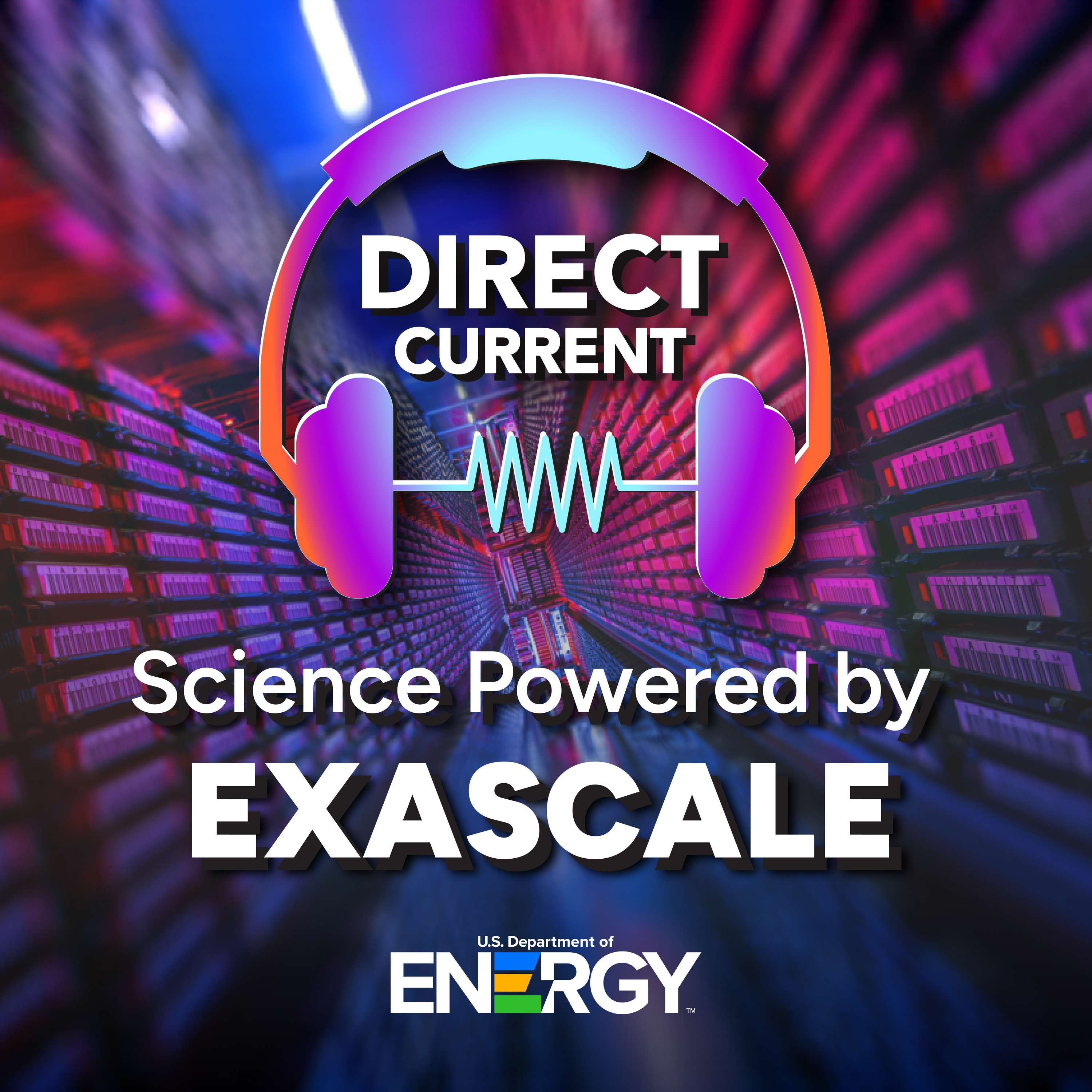 Direct Current - An Energy.gov PodcastS5 E4: Science Powered by ExascaleWhat is exascale computing? Why does it matter? To find out, we connected with the computing experts at DOE's national laboratories. Join us as we discuss the arduous journey to build three of the fastest computers in the world and their software. After more than a decade of planning and work, these powerful exascale computers are now enabling groundbreaking research that wouldn’t be possible otherwise. With research in cancer, biofuels, space exploration, and more, exascale computing is bringing scientific discovery to new heights.2025-01-1024 min
Direct Current - An Energy.gov PodcastS5 E4: Science Powered by ExascaleWhat is exascale computing? Why does it matter? To find out, we connected with the computing experts at DOE's national laboratories. Join us as we discuss the arduous journey to build three of the fastest computers in the world and their software. After more than a decade of planning and work, these powerful exascale computers are now enabling groundbreaking research that wouldn’t be possible otherwise. With research in cancer, biofuels, space exploration, and more, exascale computing is bringing scientific discovery to new heights.2025-01-1024 min Edicola CloudEdicola[19] Sparkle attiva il POP nel data center Aruba - Microsoft, accordo da 22M con CISPE - Oracle annuncia Exadata ExascaleQuesta settimana, gli edicolanti hanno parlato di:1️⃣ 🔌 Sparkle attiva il POP nel data center Aruba👉 Leggi qui: https://www.corrierecomunicazioni.it/digital-economy/cloud/sparkle-attiva-il-pop-nel-data-center-aruba-roma-si-rafforza-come-hub-di-connettivita-globale/ 2️⃣ 💵 Microsoft, accordo da 22M con CISPE 👉 Leggi qui: https://www.reuters.com/technology/microsoft-clinches-deal-settle-cispe-antitrust-complaint-2024-07-10/ 3️⃣ 📢 Oracle annuncia Exadata Exascale👉 Leggi qui: https://www.oracle.com/fi/news/announcement/oracle-announces-exadata-exascale-worlds-only-intelligent-data-architecture-for-the-cloud-2024-07-11/2024-07-1519 min
Edicola CloudEdicola[19] Sparkle attiva il POP nel data center Aruba - Microsoft, accordo da 22M con CISPE - Oracle annuncia Exadata ExascaleQuesta settimana, gli edicolanti hanno parlato di:1️⃣ 🔌 Sparkle attiva il POP nel data center Aruba👉 Leggi qui: https://www.corrierecomunicazioni.it/digital-economy/cloud/sparkle-attiva-il-pop-nel-data-center-aruba-roma-si-rafforza-come-hub-di-connettivita-globale/ 2️⃣ 💵 Microsoft, accordo da 22M con CISPE 👉 Leggi qui: https://www.reuters.com/technology/microsoft-clinches-deal-settle-cispe-antitrust-complaint-2024-07-10/ 3️⃣ 📢 Oracle annuncia Exadata Exascale👉 Leggi qui: https://www.oracle.com/fi/news/announcement/oracle-announces-exadata-exascale-worlds-only-intelligent-data-architecture-for-the-cloud-2024-07-11/2024-07-1519 min @HPC Podcast Archives - OrionX.net@HPCpodcast-86: DOE Exascale Project w Christine ChalkWe are delighted to be joined by Christine Chalk, physical scientist at U.S. Department of Energy and federal program manager for the Exascale Computing Project (ECP) and the Oak Ridge Leadership Computing Facility. Christine is also responsible for budget formulation for Advanced Scientific Computing Research (ASCR) and management of the Advanced Scientific Computing Advisory Committee and the Computational Science Graduate Fellowship. Topics include the ECP project and what made it so successful, how policy turns into a budget, and the growing importance of the role of women in HPC.
OrionX Editorial Tea...2024-06-2600 min
@HPC Podcast Archives - OrionX.net@HPCpodcast-86: DOE Exascale Project w Christine ChalkWe are delighted to be joined by Christine Chalk, physical scientist at U.S. Department of Energy and federal program manager for the Exascale Computing Project (ECP) and the Oak Ridge Leadership Computing Facility. Christine is also responsible for budget formulation for Advanced Scientific Computing Research (ASCR) and management of the Advanced Scientific Computing Advisory Committee and the Computational Science Graduate Fellowship. Topics include the ECP project and what made it so successful, how policy turns into a budget, and the growing importance of the role of women in HPC.
OrionX Editorial Tea...2024-06-2600 min @HPCpodcast with Shahin Khan and Doug Black@HPCpodcast-86: DOE Exascale Project w Christine ChalkWe are delighted to be joined by Christine Chalk, physical scientist at U.S. Department of Energy and federal program manager for the Exascale Computing Project (ECP) and the Oak Ridge Leadership Computing Facility. Christine is also responsible for budget formulation for Advanced Scientific Computing Research (ASCR) and management of the Advanced Scientific Computing Advisory Committee and the Computational Science Graduate Fellowship. Topics include the ECP project and what made it so successful, how policy turns into a budget, and the growing importance of the role of women in HPC.
OrionX Editorial Tea...2024-06-2600 min
@HPCpodcast with Shahin Khan and Doug Black@HPCpodcast-86: DOE Exascale Project w Christine ChalkWe are delighted to be joined by Christine Chalk, physical scientist at U.S. Department of Energy and federal program manager for the Exascale Computing Project (ECP) and the Oak Ridge Leadership Computing Facility. Christine is also responsible for budget formulation for Advanced Scientific Computing Research (ASCR) and management of the Advanced Scientific Computing Advisory Committee and the Computational Science Graduate Fellowship. Topics include the ECP project and what made it so successful, how policy turns into a budget, and the growing importance of the role of women in HPC.
OrionX Editorial Tea...2024-06-2600 min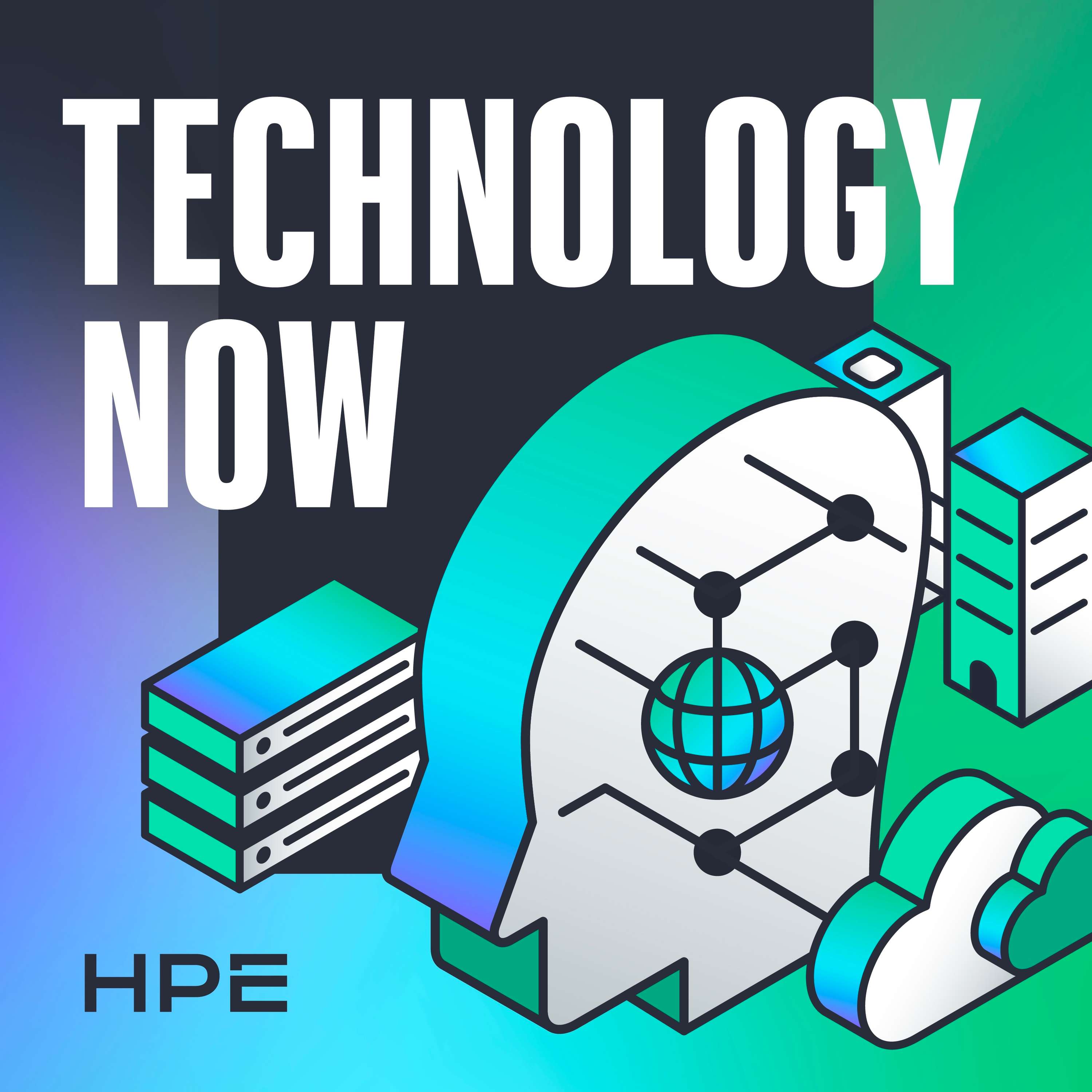 Technology NowAurora - The world's second exascale computer officially recognizedIn this episode we are looking at computers going fast. ‘Exascale’ means a computer is running a billion, billion operations every second. At the 2024 ISC high-performance conference in Hamburg, Germany, the world’s second exascale machine was officially recognised: The Aurora supercomputer at Argonne National Laboratory officially broke the exascale barrier at 1.012 exaflops. So why does exascale matter, and why is it so difficult to achieve? Joining us to discuss is Susan Coghlan, Project Director of the Aurora exascale computer at the Argonne Leadership Computing Facility at Argonne National Laboratory in Lemont, Illinois.This is Techno...2024-05-2322 min
Technology NowAurora - The world's second exascale computer officially recognizedIn this episode we are looking at computers going fast. ‘Exascale’ means a computer is running a billion, billion operations every second. At the 2024 ISC high-performance conference in Hamburg, Germany, the world’s second exascale machine was officially recognised: The Aurora supercomputer at Argonne National Laboratory officially broke the exascale barrier at 1.012 exaflops. So why does exascale matter, and why is it so difficult to achieve? Joining us to discuss is Susan Coghlan, Project Director of the Aurora exascale computer at the Argonne Leadership Computing Facility at Argonne National Laboratory in Lemont, Illinois.This is Techno...2024-05-2322 min Technology NowAurora - The world's second exascale computer officially recognizedIn this episode we are looking at computers going fast. ‘Exascale’ means a computer is running a billion, billion operations every second. At the 2024 ISC high-performance conference in Hamburg, Germany, the world’s second exascale machine was officially recognised: The Aurora supercomputer at Argonne National Laboratory officially broke the exascale barrier at 1.012 exaflops. So why does exascale matter, and why is it so difficult to achieve? Joining us to discuss is Susan Coghlan, Project Director of the Aurora exascale computer at the Argonne Leadership Computing Facility at Argonne National Laboratory in Lemont, Illinois.This is Techno...2024-05-2322 min
Technology NowAurora - The world's second exascale computer officially recognizedIn this episode we are looking at computers going fast. ‘Exascale’ means a computer is running a billion, billion operations every second. At the 2024 ISC high-performance conference in Hamburg, Germany, the world’s second exascale machine was officially recognised: The Aurora supercomputer at Argonne National Laboratory officially broke the exascale barrier at 1.012 exaflops. So why does exascale matter, and why is it so difficult to achieve? Joining us to discuss is Susan Coghlan, Project Director of the Aurora exascale computer at the Argonne Leadership Computing Facility at Argonne National Laboratory in Lemont, Illinois.This is Techno...2024-05-2322 min @HPC Podcast Archives - OrionX.net@HPCpodcast-70: Paul Messina – Journey to ExascaleFrom the early days of supercomputing through the stellar success of the Exascale Project, few HPC luminaries have played such an integral and leadership role in supercomputing as Dr. Paul Messina. So as we look at the annual observance of the Exascale Day on October eighteenth, we were delighted to get a chance to discuss the journey to Exascale with someone who has led and overseen 10 orders of magnitude in performance improvement. Dr. Messina’s distinguished career dates back to the early 70s. After earning his PhD at the University Of Cincinnati, Paul joined Argonne National Lab in 19...2023-10-1700 min
@HPC Podcast Archives - OrionX.net@HPCpodcast-70: Paul Messina – Journey to ExascaleFrom the early days of supercomputing through the stellar success of the Exascale Project, few HPC luminaries have played such an integral and leadership role in supercomputing as Dr. Paul Messina. So as we look at the annual observance of the Exascale Day on October eighteenth, we were delighted to get a chance to discuss the journey to Exascale with someone who has led and overseen 10 orders of magnitude in performance improvement. Dr. Messina’s distinguished career dates back to the early 70s. After earning his PhD at the University Of Cincinnati, Paul joined Argonne National Lab in 19...2023-10-1700 min @HPCpodcast with Shahin Khan and Doug Black@HPCpodcast-70: Paul Messina – Journey to ExascaleFrom the early days of supercomputing through the stellar success of the Exascale Project, few HPC luminaries have played such an integral and leadership role in supercomputing as Dr. Paul Messina. So as we look at the annual observance of the Exascale Day on October eighteenth, we were delighted to get a chance to discuss the journey to Exascale with someone who has led and overseen 10 orders of magnitude in performance improvement. Dr. Messina’s distinguished career dates back to the early 70s. After earning his PhD at the University Of Cincinnati, Paul joined Argonne National Lab in 19...2023-10-1700 min
@HPCpodcast with Shahin Khan and Doug Black@HPCpodcast-70: Paul Messina – Journey to ExascaleFrom the early days of supercomputing through the stellar success of the Exascale Project, few HPC luminaries have played such an integral and leadership role in supercomputing as Dr. Paul Messina. So as we look at the annual observance of the Exascale Day on October eighteenth, we were delighted to get a chance to discuss the journey to Exascale with someone who has led and overseen 10 orders of magnitude in performance improvement. Dr. Messina’s distinguished career dates back to the early 70s. After earning his PhD at the University Of Cincinnati, Paul joined Argonne National Lab in 19...2023-10-1700 min OrionX.net@HPCpodcast-70: Paul Messina – Journey to ExascaleFrom the early days of supercomputing through the stellar success of the Exascale Project, few HPC luminaries have played such an integral and leadership role in supercomputing as Dr. Paul Messina. So as we look at the annual observance of the Exascale Day on October eighteenth, we were delighted to get a chance to discuss the journey to Exascale with someone who has led and overseen 10 orders of magnitude in performance improvement. Dr. Messina’s distinguished career dates back to the early 70s. After earning his PhD at the University Of Cincinnati, Paul joined Argonne National Lab in 19...2023-10-1700 min
OrionX.net@HPCpodcast-70: Paul Messina – Journey to ExascaleFrom the early days of supercomputing through the stellar success of the Exascale Project, few HPC luminaries have played such an integral and leadership role in supercomputing as Dr. Paul Messina. So as we look at the annual observance of the Exascale Day on October eighteenth, we were delighted to get a chance to discuss the journey to Exascale with someone who has led and overseen 10 orders of magnitude in performance improvement. Dr. Messina’s distinguished career dates back to the early 70s. After earning his PhD at the University Of Cincinnati, Paul joined Argonne National Lab in 19...2023-10-1700 min Technology UntangledExascale: Are we ready for the next generation of supercomputers?The dawn of the exascale computer has arrived. In May 2022, a computer named Frontier was switched on at the Oak Ridge National Laboratory in the USA. At well over twice the computing power of the previous world record holder, it has ushered in a new era of supercomputers, with at least two more to follow in the coming months and years.In this episode, we’ll be looking at why this undeniably impressive milestone actually means, and more importantly, why it matters. We’ll also be looking at some of the challenges remaining as we enter the exas...2023-09-0528 min
Technology UntangledExascale: Are we ready for the next generation of supercomputers?The dawn of the exascale computer has arrived. In May 2022, a computer named Frontier was switched on at the Oak Ridge National Laboratory in the USA. At well over twice the computing power of the previous world record holder, it has ushered in a new era of supercomputers, with at least two more to follow in the coming months and years.In this episode, we’ll be looking at why this undeniably impressive milestone actually means, and more importantly, why it matters. We’ll also be looking at some of the challenges remaining as we enter the exas...2023-09-0528 min Exascale Computing Project PodcastEpisode 105: Computing Luminary Jack Dongarra’s Perspective on the Exascale Computing ProjectEpisode notes: Jack Dongarra says ECP has been a great success in terms of human and technical accomplishments but post-project follow-on is critical.2023-06-2322 min
Exascale Computing Project PodcastEpisode 105: Computing Luminary Jack Dongarra’s Perspective on the Exascale Computing ProjectEpisode notes: Jack Dongarra says ECP has been a great success in terms of human and technical accomplishments but post-project follow-on is critical.2023-06-2322 min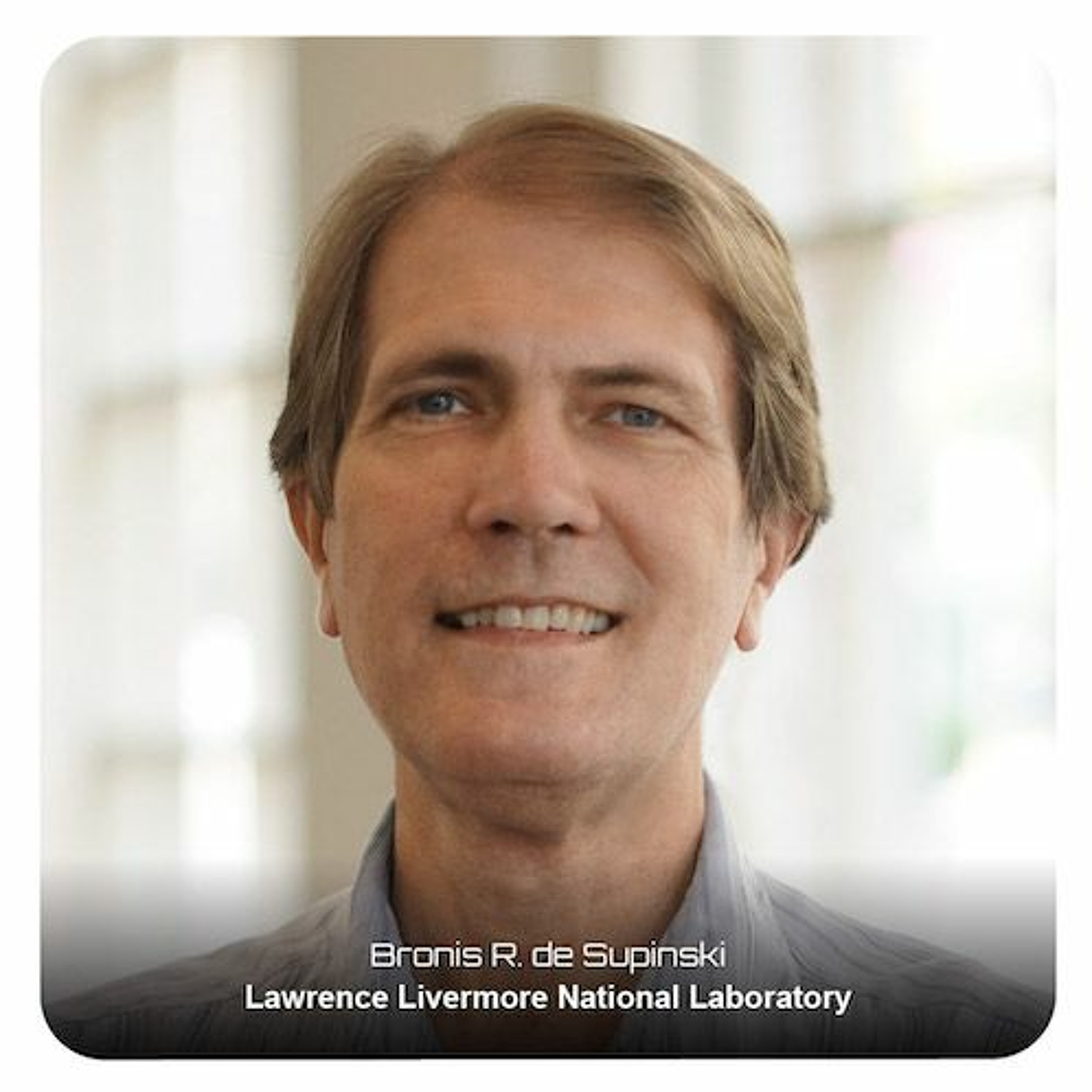 Exascale Computing Project PodcastEpisode 104: Siting the El Capitan Exascale Supercomputer at Lawrence Livermore Lab.Episode notes: Lawrence Livermore National Lab is preparing for El Capitan, the National Nuclear Security Administration’s first exascale supercomputer.2023-05-2431 min
Exascale Computing Project PodcastEpisode 104: Siting the El Capitan Exascale Supercomputer at Lawrence Livermore Lab.Episode notes: Lawrence Livermore National Lab is preparing for El Capitan, the National Nuclear Security Administration’s first exascale supercomputer.2023-05-2431 min Stereo ChemistryC&EN Uncovered: What exascale computing could mean for chemistryAt Oak Ridge National Laboratory, a supercomputer named Frontier has broken the exascale computing barrier, meaning it can calculate more than a million trillion floating-point operations per second. In this episode, C&EN reporters Craig Bettenhausen and Ariana Remmel discuss how Frontier works and what that kind of power could mean for computational chemistry.C&EN Uncovered, a new project from C&EN’s podcast, Stereo Chemistry, offers a deeper look at subjects from recent cover stories. Read Remmel’s Sept. 5, 2022, cover story about exascale computing at https://bit.ly/3RkPjr6. A transcript of th...2023-01-3117 min
Stereo ChemistryC&EN Uncovered: What exascale computing could mean for chemistryAt Oak Ridge National Laboratory, a supercomputer named Frontier has broken the exascale computing barrier, meaning it can calculate more than a million trillion floating-point operations per second. In this episode, C&EN reporters Craig Bettenhausen and Ariana Remmel discuss how Frontier works and what that kind of power could mean for computational chemistry.C&EN Uncovered, a new project from C&EN’s podcast, Stereo Chemistry, offers a deeper look at subjects from recent cover stories. Read Remmel’s Sept. 5, 2022, cover story about exascale computing at https://bit.ly/3RkPjr6. A transcript of th...2023-01-3117 min Astro arXiv | astro-ph.IMGRaM-X: A new GPU-accelerated dynamical spacetime GRMHD code for Exascale computing with the Einstein ToolkitGRaM-X: A new GPU-accelerated dynamical spacetime GRMHD code for Exascale computing with the Einstein Toolkit by Swapnil Shankar et al. on Tuesday 22 November
We present GRaM-X (General Relativistic accelerated Magnetohydrodynamics on
AMReX), a new GPU-accelerated dynamical-spacetime general relativistic
magnetohydrodynamics (GRMHD) code which extends the GRMHD capability of
Einstein Toolkit to GPU-based exascale systems. GRaM-X supports 3D adaptive
mesh refinement (AMR) on GPUs via a new AMR driver for the Einstein Toolkit
called CarpetX which in turn leverages AMReX, an AMR library developed for use
by the United States DOE's Exascale Computing Project (ECP). We use the Z4c
formalism to...2022-11-2301 min
Astro arXiv | astro-ph.IMGRaM-X: A new GPU-accelerated dynamical spacetime GRMHD code for Exascale computing with the Einstein ToolkitGRaM-X: A new GPU-accelerated dynamical spacetime GRMHD code for Exascale computing with the Einstein Toolkit by Swapnil Shankar et al. on Tuesday 22 November
We present GRaM-X (General Relativistic accelerated Magnetohydrodynamics on
AMReX), a new GPU-accelerated dynamical-spacetime general relativistic
magnetohydrodynamics (GRMHD) code which extends the GRMHD capability of
Einstein Toolkit to GPU-based exascale systems. GRaM-X supports 3D adaptive
mesh refinement (AMR) on GPUs via a new AMR driver for the Einstein Toolkit
called CarpetX which in turn leverages AMReX, an AMR library developed for use
by the United States DOE's Exascale Computing Project (ECP). We use the Z4c
formalism to...2022-11-2301 min Astro arXiv | all categoriesGRaM-X: A new GPU-accelerated dynamical spacetime GRMHD code for Exascale computing with the Einstein ToolkitGRaM-X: A new GPU-accelerated dynamical spacetime GRMHD code for Exascale computing with the Einstein Toolkit by Swapnil Shankar et al. on Tuesday 22 November
We present GRaM-X (General Relativistic accelerated Magnetohydrodynamics on
AMReX), a new GPU-accelerated dynamical-spacetime general relativistic
magnetohydrodynamics (GRMHD) code which extends the GRMHD capability of
Einstein Toolkit to GPU-based exascale systems. GRaM-X supports 3D adaptive
mesh refinement (AMR) on GPUs via a new AMR driver for the Einstein Toolkit
called CarpetX which in turn leverages AMReX, an AMR library developed for use
by the United States DOE's Exascale Computing Project (ECP). We use the Z4c
formalism to...2022-11-2301 min
Astro arXiv | all categoriesGRaM-X: A new GPU-accelerated dynamical spacetime GRMHD code for Exascale computing with the Einstein ToolkitGRaM-X: A new GPU-accelerated dynamical spacetime GRMHD code for Exascale computing with the Einstein Toolkit by Swapnil Shankar et al. on Tuesday 22 November
We present GRaM-X (General Relativistic accelerated Magnetohydrodynamics on
AMReX), a new GPU-accelerated dynamical-spacetime general relativistic
magnetohydrodynamics (GRMHD) code which extends the GRMHD capability of
Einstein Toolkit to GPU-based exascale systems. GRaM-X supports 3D adaptive
mesh refinement (AMR) on GPUs via a new AMR driver for the Einstein Toolkit
called CarpetX which in turn leverages AMReX, an AMR library developed for use
by the United States DOE's Exascale Computing Project (ECP). We use the Z4c
formalism to...2022-11-2301 min Astro arXiv | astro-ph.IMGRaM-X: A new GPU-accelerated dynamical spacetime GRMHD code for Exascale computing with the Einstein ToolkitGRaM-X: A new GPU-accelerated dynamical spacetime GRMHD code for Exascale computing with the Einstein Toolkit by Swapnil Shankar et al. on Monday 21 November
We present GRaM-X (General Relativistic accelerated Magnetohydrodynamics on
AMReX), a new GPU-accelerated dynamical-spacetime general relativistic
magnetohydrodynamics (GRMHD) code which extends the GRMHD capability of
Einstein Toolkit to GPU-based exascale systems. GRaM-X supports 3D adaptive
mesh refinement (AMR) on GPUs via a new AMR driver for the Einstein Toolkit
called CarpetX which in turn leverages AMReX, an AMR library developed for use
by the United States DOE's Exascale Computing Project (ECP). We use the Z4c
formalism to...2022-11-2201 min
Astro arXiv | astro-ph.IMGRaM-X: A new GPU-accelerated dynamical spacetime GRMHD code for Exascale computing with the Einstein ToolkitGRaM-X: A new GPU-accelerated dynamical spacetime GRMHD code for Exascale computing with the Einstein Toolkit by Swapnil Shankar et al. on Monday 21 November
We present GRaM-X (General Relativistic accelerated Magnetohydrodynamics on
AMReX), a new GPU-accelerated dynamical-spacetime general relativistic
magnetohydrodynamics (GRMHD) code which extends the GRMHD capability of
Einstein Toolkit to GPU-based exascale systems. GRaM-X supports 3D adaptive
mesh refinement (AMR) on GPUs via a new AMR driver for the Einstein Toolkit
called CarpetX which in turn leverages AMReX, an AMR library developed for use
by the United States DOE's Exascale Computing Project (ECP). We use the Z4c
formalism to...2022-11-2201 min Astro arXiv | all categoriesGRaM-X: A new GPU-accelerated dynamical spacetime GRMHD code for Exascale computing with the Einstein ToolkitGRaM-X: A new GPU-accelerated dynamical spacetime GRMHD code for Exascale computing with the Einstein Toolkit by Swapnil Shankar et al. on Monday 21 November
We present GRaM-X (General Relativistic accelerated Magnetohydrodynamics on
AMReX), a new GPU-accelerated dynamical-spacetime general relativistic
magnetohydrodynamics (GRMHD) code which extends the GRMHD capability of
Einstein Toolkit to GPU-based exascale systems. GRaM-X supports 3D adaptive
mesh refinement (AMR) on GPUs via a new AMR driver for the Einstein Toolkit
called CarpetX which in turn leverages AMReX, an AMR library developed for use
by the United States DOE's Exascale Computing Project (ECP). We use the Z4c
formalism to...2022-11-2201 min
Astro arXiv | all categoriesGRaM-X: A new GPU-accelerated dynamical spacetime GRMHD code for Exascale computing with the Einstein ToolkitGRaM-X: A new GPU-accelerated dynamical spacetime GRMHD code for Exascale computing with the Einstein Toolkit by Swapnil Shankar et al. on Monday 21 November
We present GRaM-X (General Relativistic accelerated Magnetohydrodynamics on
AMReX), a new GPU-accelerated dynamical-spacetime general relativistic
magnetohydrodynamics (GRMHD) code which extends the GRMHD capability of
Einstein Toolkit to GPU-based exascale systems. GRaM-X supports 3D adaptive
mesh refinement (AMR) on GPUs via a new AMR driver for the Einstein Toolkit
called CarpetX which in turn leverages AMReX, an AMR library developed for use
by the United States DOE's Exascale Computing Project (ECP). We use the Z4c
formalism to...2022-11-2201 min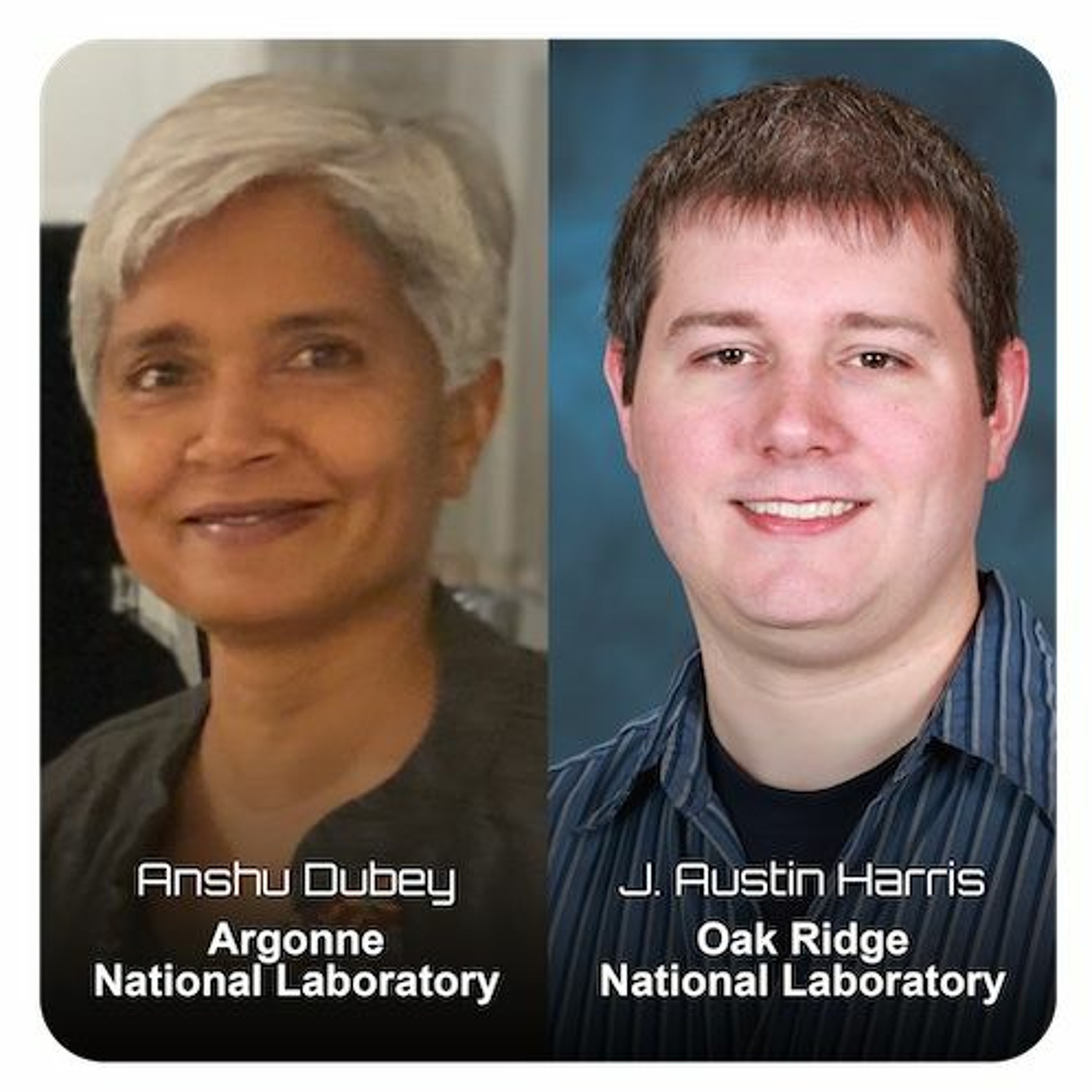 Exascale Computing Project PodcastEpisode 98: Providing Exascale-Class Multiphysics Simulation Capability to Multiple Science DomainsEpisode notes: Flash-X, a multiphysics simulation software package, integrates tools that provide a performance portability solution for exascale computing.2022-10-2029 min
Exascale Computing Project PodcastEpisode 98: Providing Exascale-Class Multiphysics Simulation Capability to Multiple Science DomainsEpisode notes: Flash-X, a multiphysics simulation software package, integrates tools that provide a performance portability solution for exascale computing.2022-10-2029 min OrionX.net@HPCpodcast-40: Kathy Yelick on Exascale Day, Research, New CollegeWe are delighted to have Kathy Yelick as our special guest to celebrate the Exascale Day (10/18). Dr. Yelick is the Robert S. Pepper Distinguished Professor of Electrical Engineering and Computer Sciences and the Vice Chancellor for Research at UC Berkeley, and Senior Faculty Scientist at Lawrence Berkeley National Laboratory. Her expansive perspective and expertise led us through a wide ranging discussion including the impact of exascale computing on society, the role of HPC in helping set public and international policy, multi-physics research, advancing software technologies, diversity in HPC, the recent RFI from DOE and what the future...2022-10-1700 min
OrionX.net@HPCpodcast-40: Kathy Yelick on Exascale Day, Research, New CollegeWe are delighted to have Kathy Yelick as our special guest to celebrate the Exascale Day (10/18). Dr. Yelick is the Robert S. Pepper Distinguished Professor of Electrical Engineering and Computer Sciences and the Vice Chancellor for Research at UC Berkeley, and Senior Faculty Scientist at Lawrence Berkeley National Laboratory. Her expansive perspective and expertise led us through a wide ranging discussion including the impact of exascale computing on society, the role of HPC in helping set public and international policy, multi-physics research, advancing software technologies, diversity in HPC, the recent RFI from DOE and what the future...2022-10-1700 min @HPCpodcast with Shahin Khan and Doug Black@HPCpodcast-40: Kathy Yelick on Exascale Day, Research, New CollegeWe are delighted to have Kathy Yelick as our special guest to celebrate the Exascale Day (10/18). Dr. Yelick is the Robert S. Pepper Distinguished Professor of Electrical Engineering and Computer Sciences and the Vice Chancellor for Research at UC Berkeley, and Senior Faculty Scientist at Lawrence Berkeley National Laboratory. Her expansive perspective and expertise led us through a wide ranging discussion including the impact of exascale computing on society, the role of HPC in helping set public and international policy, multi-physics research, advancing software technologies, diversity in HPC, the recent RFI from DOE and what the future...2022-10-1700 min
@HPCpodcast with Shahin Khan and Doug Black@HPCpodcast-40: Kathy Yelick on Exascale Day, Research, New CollegeWe are delighted to have Kathy Yelick as our special guest to celebrate the Exascale Day (10/18). Dr. Yelick is the Robert S. Pepper Distinguished Professor of Electrical Engineering and Computer Sciences and the Vice Chancellor for Research at UC Berkeley, and Senior Faculty Scientist at Lawrence Berkeley National Laboratory. Her expansive perspective and expertise led us through a wide ranging discussion including the impact of exascale computing on society, the role of HPC in helping set public and international policy, multi-physics research, advancing software technologies, diversity in HPC, the recent RFI from DOE and what the future...2022-10-1700 min @HPC Podcast Archives - OrionX.net@HPCpodcast-40: Kathy Yelick on Exascale Day, Research, New CollegeWe are delighted to have Kathy Yelick as our special guest to celebrate the Exascale Day (10/18). Dr. Yelick is the Robert S. Pepper Distinguished Professor of Electrical Engineering and Computer Sciences and the Vice Chancellor for Research at UC Berkeley, and Senior Faculty Scientist at Lawrence Berkeley National Laboratory. Her expansive perspective and expertise led us through a wide ranging discussion including the impact of exascale computing on society, the role of HPC in helping set public and international policy, multi-physics research, advancing software technologies, diversity in HPC, the recent RFI from DOE and what the future...2022-10-1700 min
@HPC Podcast Archives - OrionX.net@HPCpodcast-40: Kathy Yelick on Exascale Day, Research, New CollegeWe are delighted to have Kathy Yelick as our special guest to celebrate the Exascale Day (10/18). Dr. Yelick is the Robert S. Pepper Distinguished Professor of Electrical Engineering and Computer Sciences and the Vice Chancellor for Research at UC Berkeley, and Senior Faculty Scientist at Lawrence Berkeley National Laboratory. Her expansive perspective and expertise led us through a wide ranging discussion including the impact of exascale computing on society, the role of HPC in helping set public and international policy, multi-physics research, advancing software technologies, diversity in HPC, the recent RFI from DOE and what the future...2022-10-1700 min Code TogetherPreparing Applications for Aurora in the Exascale EraIntel, HPE, and Argonne National Lab are collaborating closely to deliver Aurora. Built on Intel’s architecture, Aurora will be Argonne’s first Exascale, high performance computing system. Its performance is expected to exceed exaflops, which is 2 billion billion calculations per second. It’s enormous scale and performance levels will accelerate research in science and engineering fields at a scale that is not possible today.
ACLF – Aurora:
alcf.anl.gov/aurora
DOE Leadership Project:
doeleadershipcomputing.org
Intel oneAPI:
oneapi.intel.com
Intel oneAPI Toolkits:
intel.com/content/www/us/en/develope...2022-10-0737 min
Code TogetherPreparing Applications for Aurora in the Exascale EraIntel, HPE, and Argonne National Lab are collaborating closely to deliver Aurora. Built on Intel’s architecture, Aurora will be Argonne’s first Exascale, high performance computing system. Its performance is expected to exceed exaflops, which is 2 billion billion calculations per second. It’s enormous scale and performance levels will accelerate research in science and engineering fields at a scale that is not possible today.
ACLF – Aurora:
alcf.anl.gov/aurora
DOE Leadership Project:
doeleadershipcomputing.org
Intel oneAPI:
oneapi.intel.com
Intel oneAPI Toolkits:
intel.com/content/www/us/en/develope...2022-10-0737 min Science Metaverse PodcastEP31: Vive focus 3 getting add ons, Meta Connect on 10/11, NLP for Molecular Visualization, The Merge, and exascale computeVIVE Focus 3 gets Facial Tracker, and Eye Trackerhttps://blog.vive.com/us/vive-focus-3-gets-facial-tracker-and-eye-tracker/?utm_source=blog&utm_medium=social+media&utm_campaign=vive_focus_3_gets_facial_tracker_and_eye_trackerMeta Connect will be a virtual event starting on October 11, 2022https://www.metaconnect.com/en-usParsing natural speech and writing to specific commands by using GPT3 -and it's all web! https://youtu.be/IrOUyazOzHk2022-09-1123 min
Science Metaverse PodcastEP31: Vive focus 3 getting add ons, Meta Connect on 10/11, NLP for Molecular Visualization, The Merge, and exascale computeVIVE Focus 3 gets Facial Tracker, and Eye Trackerhttps://blog.vive.com/us/vive-focus-3-gets-facial-tracker-and-eye-tracker/?utm_source=blog&utm_medium=social+media&utm_campaign=vive_focus_3_gets_facial_tracker_and_eye_trackerMeta Connect will be a virtual event starting on October 11, 2022https://www.metaconnect.com/en-usParsing natural speech and writing to specific commands by using GPT3 -and it's all web! https://youtu.be/IrOUyazOzHk2022-09-1123 min The Sound of ScienceExascale: The New Frontier of ComputingIn May 2022, history was made at Oak Ridge National Laboratory. Frontier, the lab’s newest supercomputer, officially did what no other computer in the world had done before — it crossed the exascale barrier. If you're not familiar with the field of supercomputing, an exascale computer is an incredibly powerful system that is capable of a quintillion calculations per second. Frontier’s arrival marks a new era of computational performance that will help enable scientific breakthroughs never before possible. But this milestone didn't happen overnight. The journey to Frontier has been years in the making, with plenty of challenges and dramatic moments...2022-08-0125 min
The Sound of ScienceExascale: The New Frontier of ComputingIn May 2022, history was made at Oak Ridge National Laboratory. Frontier, the lab’s newest supercomputer, officially did what no other computer in the world had done before — it crossed the exascale barrier. If you're not familiar with the field of supercomputing, an exascale computer is an incredibly powerful system that is capable of a quintillion calculations per second. Frontier’s arrival marks a new era of computational performance that will help enable scientific breakthroughs never before possible. But this milestone didn't happen overnight. The journey to Frontier has been years in the making, with plenty of challenges and dramatic moments...2022-08-0125 min Exascale Computing Project PodcastEpisode 96: Leveraging Machine Learning for Computational and Experimental Science and EngineeringEpisode notes: Machine learning technologies are creating inspiring new opportunity vistas for scientific discovery and research at the exascale.2022-06-1618 min
Exascale Computing Project PodcastEpisode 96: Leveraging Machine Learning for Computational and Experimental Science and EngineeringEpisode notes: Machine learning technologies are creating inspiring new opportunity vistas for scientific discovery and research at the exascale.2022-06-1618 min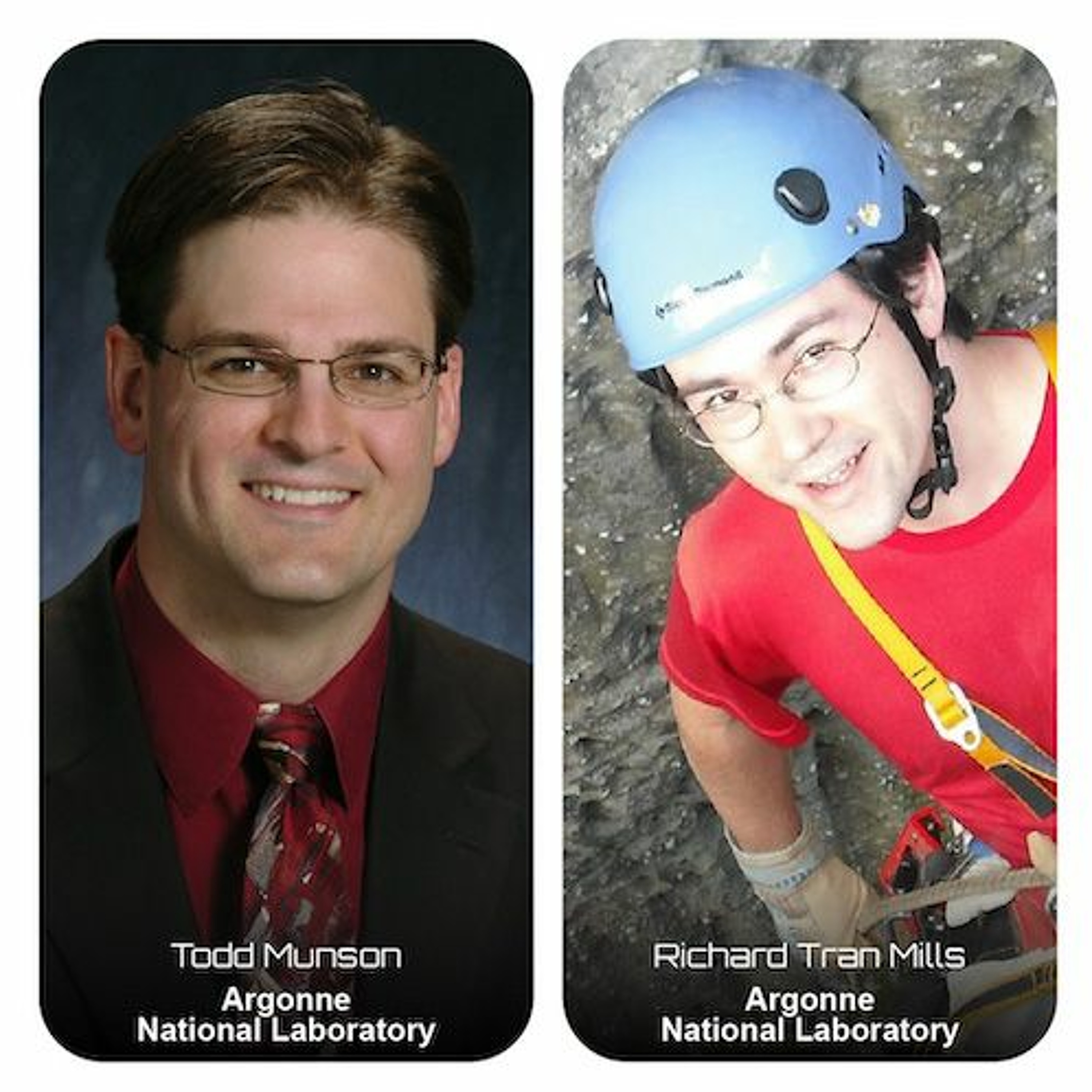 Exascale Computing Project PodcastEpisode 93: Preparing the PETSc/TAO Software Suite to Support Exascale Scientific ApplicationsEpisode notes: An Exascale Computing Project team is getting the longtime open-source PETSc/TAO software suite ready to support exascale applications.2022-03-0923 min
Exascale Computing Project PodcastEpisode 93: Preparing the PETSc/TAO Software Suite to Support Exascale Scientific ApplicationsEpisode notes: An Exascale Computing Project team is getting the longtime open-source PETSc/TAO software suite ready to support exascale applications.2022-03-0923 min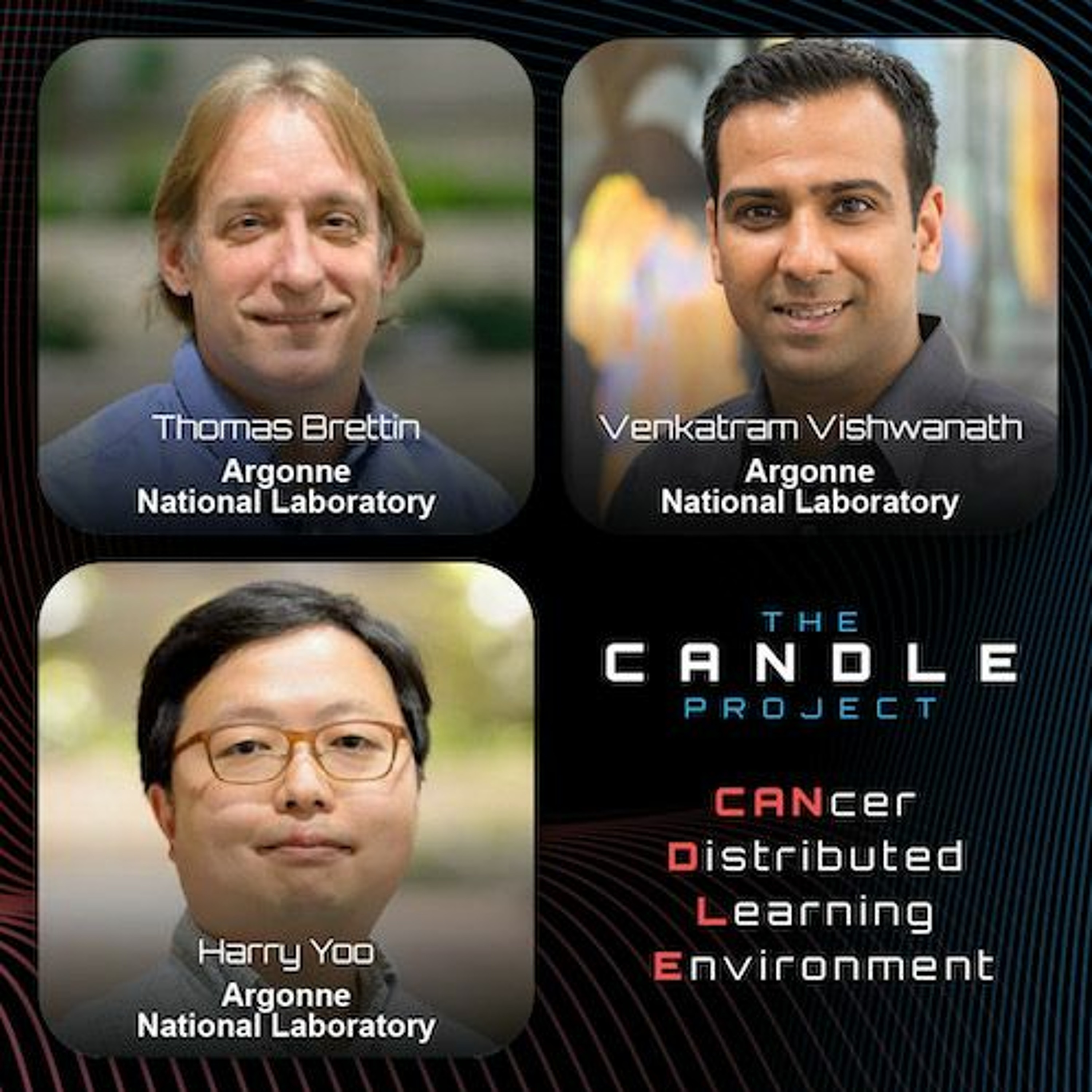 Exascale Computing Project PodcastEpisode 91: Let's Talk Exascale Code Development: CANcer Distributed Learning Environment (CANDLE)Episode notes: ECP plays key support roles in the CANDLE project, which is addressing three significant science challenge problems in cancer research.2021-12-0715 min
Exascale Computing Project PodcastEpisode 91: Let's Talk Exascale Code Development: CANcer Distributed Learning Environment (CANDLE)Episode notes: ECP plays key support roles in the CANDLE project, which is addressing three significant science challenge problems in cancer research.2021-12-0715 min #heiseshow (HD-Video)Erste Exascale-Supercomputer im Einsatz – wie China alle überholt | #heiseshowIn der jüngsten Liste der 500 schnellsten Supercomputer der Welt tauchen sie zwar nicht auf, aber in China arbeiten bereits die ersten beiden Exascale-Rechner. Sie können also mehr als eine Trillion Gleitkommaberechnungen pro Sekunde ausführen – also einen Exaflop. In den USA und Europa lassen solch leistungsfähige Supercomputer noch auf sich warten – auch dieser Bereich leidet aktuell unter Verzögerungen. Während also abseits der Top500-Liste durchaus etwas passiert, hat sich dort nur wenig getan. Große Veränderungen werden nun erst im kommenden Jahr erwartet. Was es mit den Exascale-Rechnern auf sich hat und ob sich die glo...2021-12-0200 min
#heiseshow (HD-Video)Erste Exascale-Supercomputer im Einsatz – wie China alle überholt | #heiseshowIn der jüngsten Liste der 500 schnellsten Supercomputer der Welt tauchen sie zwar nicht auf, aber in China arbeiten bereits die ersten beiden Exascale-Rechner. Sie können also mehr als eine Trillion Gleitkommaberechnungen pro Sekunde ausführen – also einen Exaflop. In den USA und Europa lassen solch leistungsfähige Supercomputer noch auf sich warten – auch dieser Bereich leidet aktuell unter Verzögerungen. Während also abseits der Top500-Liste durchaus etwas passiert, hat sich dort nur wenig getan. Große Veränderungen werden nun erst im kommenden Jahr erwartet. Was es mit den Exascale-Rechnern auf sich hat und ob sich die glo...2021-12-0200 min #heiseshow (SD-Video)Erste Exascale-Supercomputer im Einsatz – wie China alle überholt | #heiseshowIn der jüngsten Liste der 500 schnellsten Supercomputer der Welt tauchen sie zwar nicht auf, aber in China arbeiten bereits die ersten beiden Exascale-Rechner. Sie können also mehr als eine Trillion Gleitkommaberechnungen pro Sekunde ausführen – also einen Exaflop. In den USA und Europa lassen solch leistungsfähige Supercomputer noch auf sich warten – auch dieser Bereich leidet aktuell unter Verzögerungen. Während also abseits der Top500-Liste durchaus etwas passiert, hat sich dort nur wenig getan. Große Veränderungen werden nun erst im kommenden Jahr erwartet. Was es mit den Exascale-Rechnern auf sich hat und ob sich die glo...2021-12-0200 min
#heiseshow (SD-Video)Erste Exascale-Supercomputer im Einsatz – wie China alle überholt | #heiseshowIn der jüngsten Liste der 500 schnellsten Supercomputer der Welt tauchen sie zwar nicht auf, aber in China arbeiten bereits die ersten beiden Exascale-Rechner. Sie können also mehr als eine Trillion Gleitkommaberechnungen pro Sekunde ausführen – also einen Exaflop. In den USA und Europa lassen solch leistungsfähige Supercomputer noch auf sich warten – auch dieser Bereich leidet aktuell unter Verzögerungen. Während also abseits der Top500-Liste durchaus etwas passiert, hat sich dort nur wenig getan. Große Veränderungen werden nun erst im kommenden Jahr erwartet. Was es mit den Exascale-Rechnern auf sich hat und ob sich die glo...2021-12-0200 min heiseshowErste Exascale-Supercomputer im Einsatz – wie China alle überholt | #heiseshowMit Christof Windeck, Mark Mantel, Kristina Beer und Martin Holland
In der jüngsten Liste der 500 schnellsten Supercomputer der Welt tauchen sie zwar nicht auf, aber in China arbeiten bereits die ersten beiden Exascale-Rechner. Sie können also mehr als eine Trillion Gleitkommaberechnungen pro Sekunde ausführen – also einen Exaflop. In den USA und Europa lassen solch leistungsfähige Supercomputer noch auf sich warten – auch dieser Bereich leidet aktuell unter Verzögerungen. Während also abseits der Top500-Liste durchaus etwas passiert, hat sich dort nur wenig getan. Große Veränderungen werden nun erst im kommenden Jahr erwartet. Was es mit d...2021-12-0254 min
heiseshowErste Exascale-Supercomputer im Einsatz – wie China alle überholt | #heiseshowMit Christof Windeck, Mark Mantel, Kristina Beer und Martin Holland
In der jüngsten Liste der 500 schnellsten Supercomputer der Welt tauchen sie zwar nicht auf, aber in China arbeiten bereits die ersten beiden Exascale-Rechner. Sie können also mehr als eine Trillion Gleitkommaberechnungen pro Sekunde ausführen – also einen Exaflop. In den USA und Europa lassen solch leistungsfähige Supercomputer noch auf sich warten – auch dieser Bereich leidet aktuell unter Verzögerungen. Während also abseits der Top500-Liste durchaus etwas passiert, hat sich dort nur wenig getan. Große Veränderungen werden nun erst im kommenden Jahr erwartet. Was es mit d...2021-12-0254 min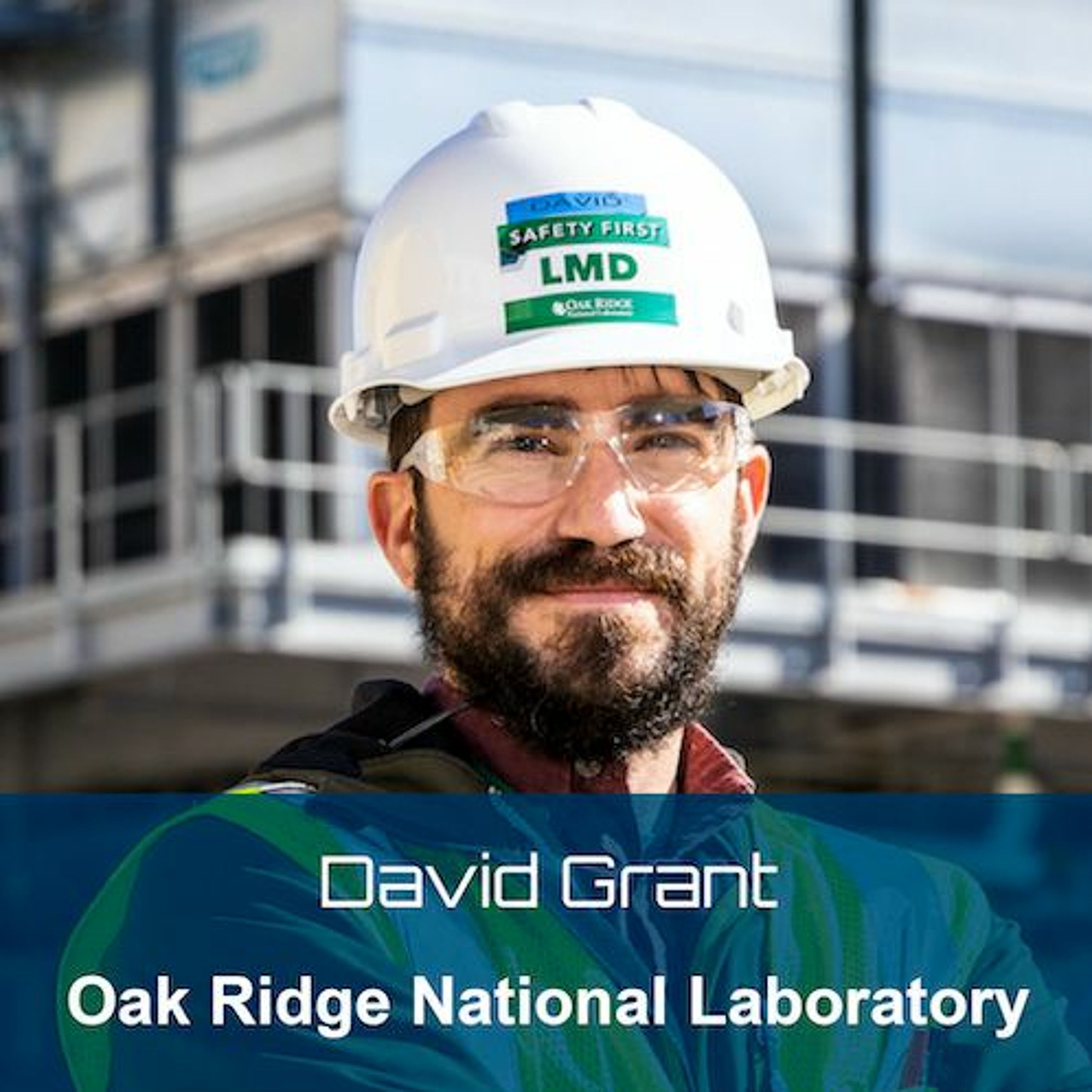 Exascale Computing Project PodcastEpisode 88: Frontier: Guiding the Design and Construction of the Mechanical SystemsEpisode Notes: Engineer David Grant must check and recheck many important design details before Frontier, the nation’s first exascale supercomputer, is powered on.2021-10-2213 min
Exascale Computing Project PodcastEpisode 88: Frontier: Guiding the Design and Construction of the Mechanical SystemsEpisode Notes: Engineer David Grant must check and recheck many important design details before Frontier, the nation’s first exascale supercomputer, is powered on.2021-10-2213 min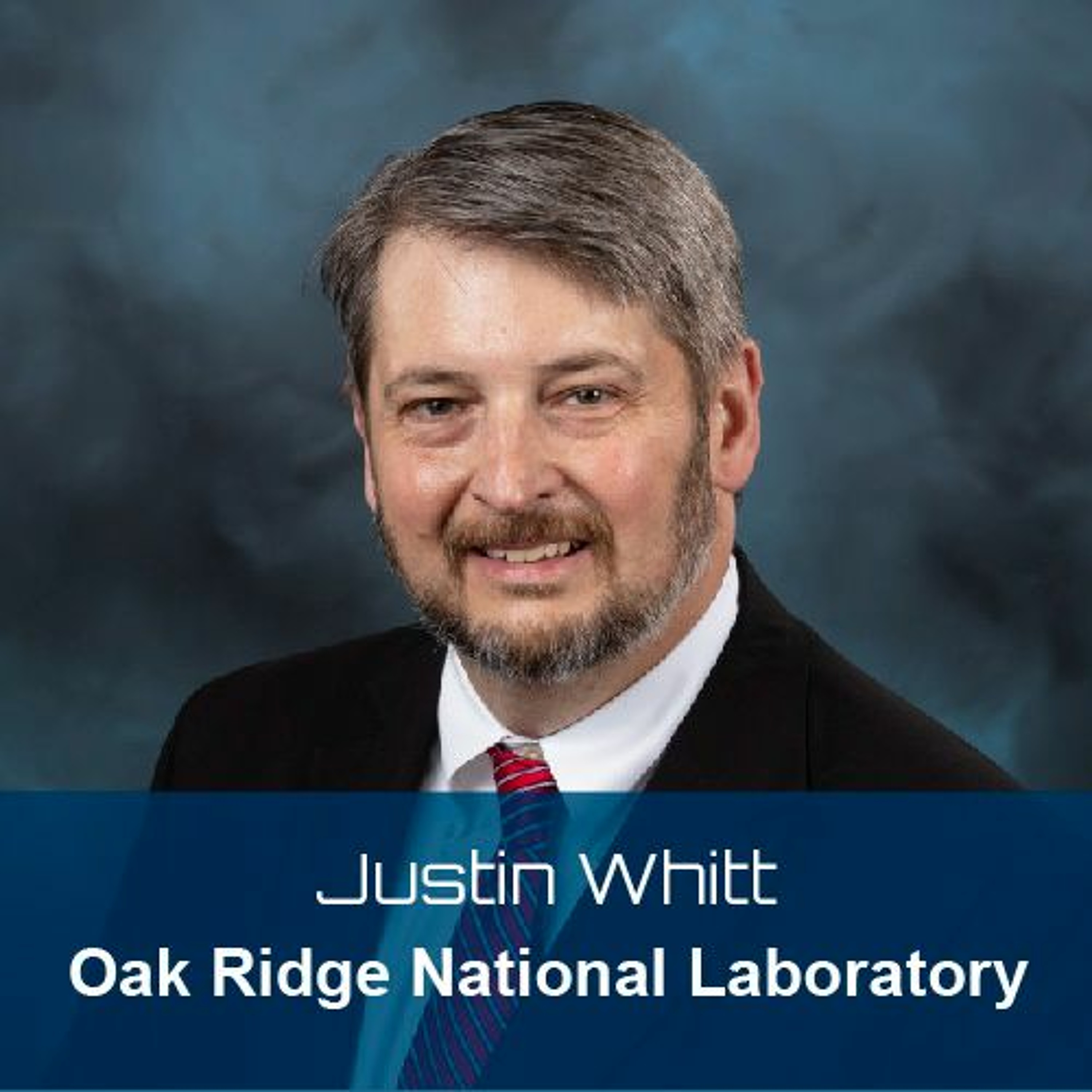 Exascale Computing Project PodcastEpisode 87: Frontier: ORNL’s Justin Whitt on Deploying the Nation’s First Exascale SupercomputerEpisode Notes: Justin Whitt describes what Frontier will do, why it's unique, progress with deployment, what’s special about exascale computing, and more.2021-10-1809 min
Exascale Computing Project PodcastEpisode 87: Frontier: ORNL’s Justin Whitt on Deploying the Nation’s First Exascale SupercomputerEpisode Notes: Justin Whitt describes what Frontier will do, why it's unique, progress with deployment, what’s special about exascale computing, and more.2021-10-1809 min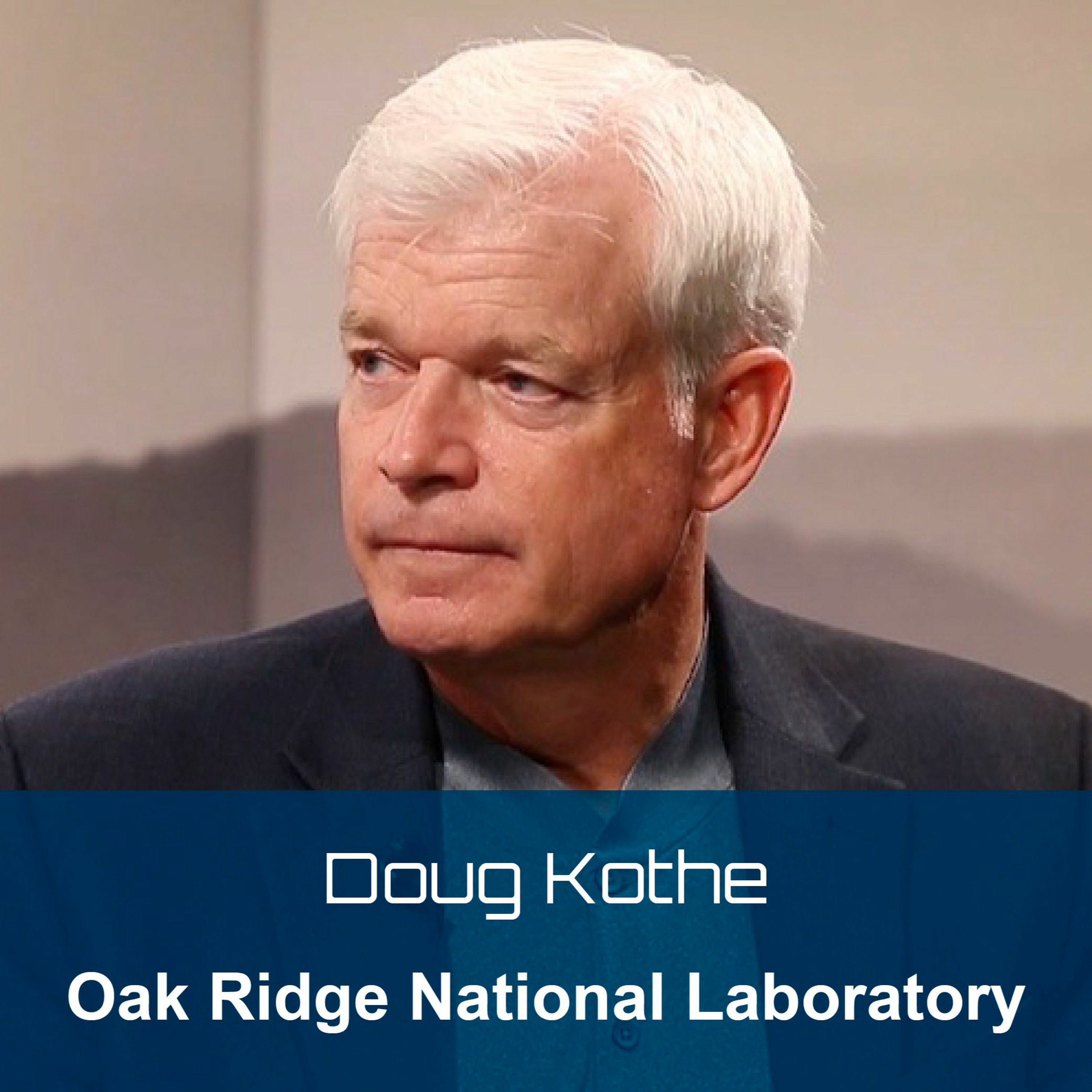 Exascale Computing Project PodcastEpisode 86: An Interview with Exascale Computing Project Director Doug KotheEpisode Notes: Doug Kothe explains the need for ECP, the why and how of its origin, its unique team dynamics, and its enduring legacy.2021-10-1824 min
Exascale Computing Project PodcastEpisode 86: An Interview with Exascale Computing Project Director Doug KotheEpisode Notes: Doug Kothe explains the need for ECP, the why and how of its origin, its unique team dynamics, and its enduring legacy.2021-10-1824 min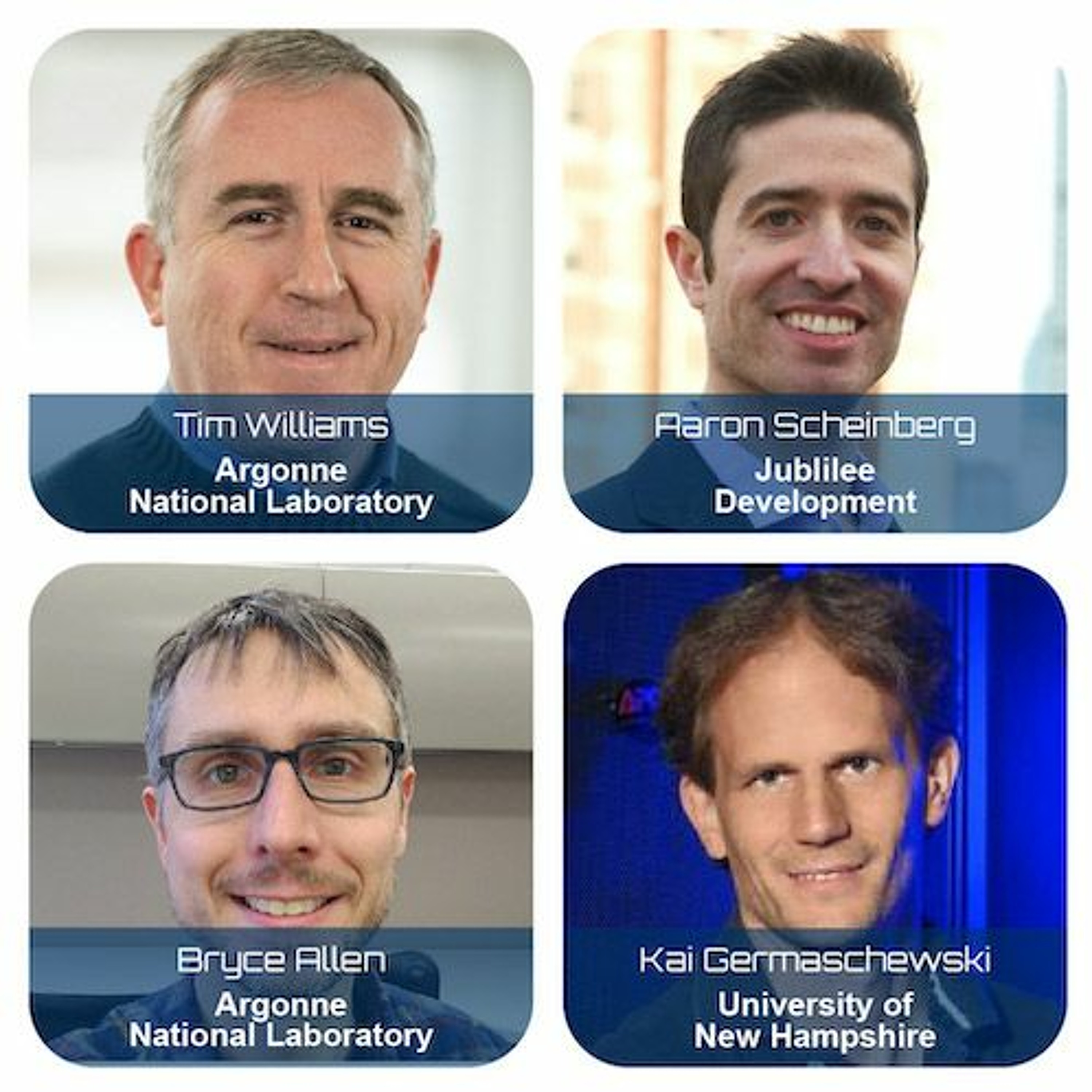 Exascale Computing Project PodcastEpisode 82: Let’s Talk Exascale Code Development: WDMapp—XGC, GENE, GEMEpisode Notes: The latest in the code-for-Aurora series explores an app aimed at high-fidelity whole device modeling of magnetically confined fusion plasmas.2021-07-0949 min
Exascale Computing Project PodcastEpisode 82: Let’s Talk Exascale Code Development: WDMapp—XGC, GENE, GEMEpisode Notes: The latest in the code-for-Aurora series explores an app aimed at high-fidelity whole device modeling of magnetically confined fusion plasmas.2021-07-0949 min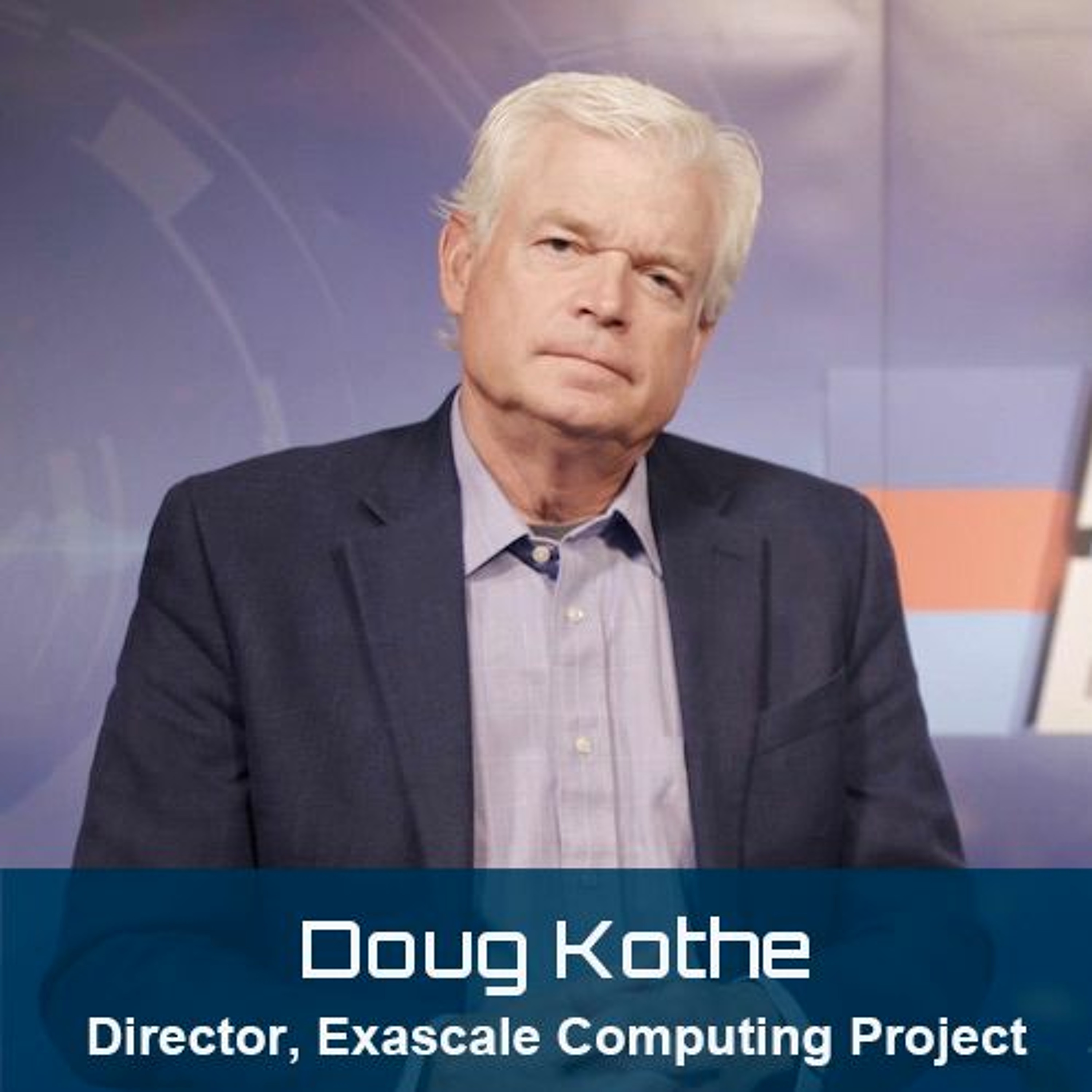 Exascale Computing Project PodcastEpisode 80: Update with Doug Kothe: Progress, Annual Meeting Highlights, and MoreEpisode Notes: Exascale Computing Project Director Doug Kothe discusses the state of the project, the recent Annual Meeting, and other topics.2021-05-1722 min
Exascale Computing Project PodcastEpisode 80: Update with Doug Kothe: Progress, Annual Meeting Highlights, and MoreEpisode Notes: Exascale Computing Project Director Doug Kothe discusses the state of the project, the recent Annual Meeting, and other topics.2021-05-1722 min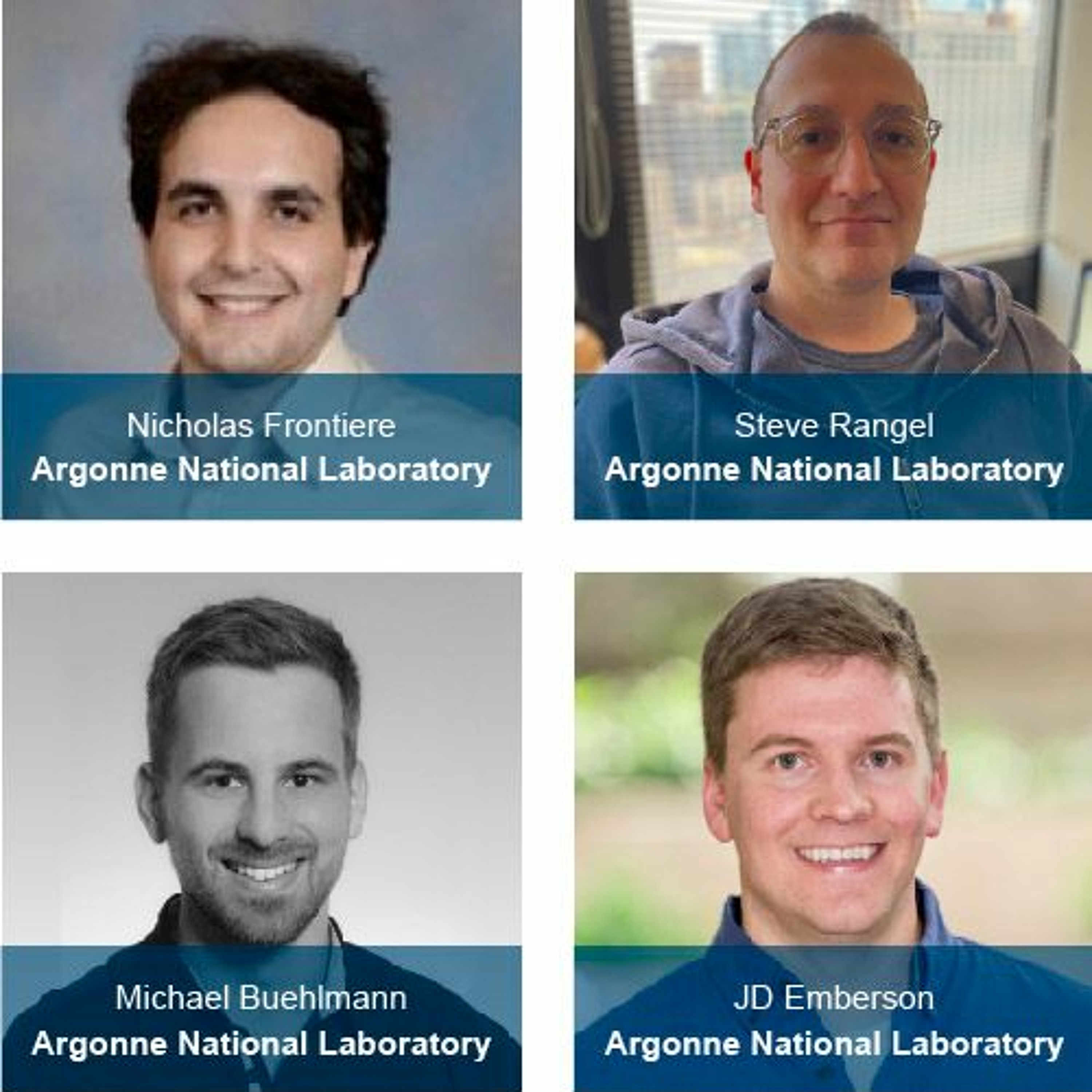 Exascale Computing Project PodcastEpisode 79: Let’s Talk Exascale Code Development: HACCEpisode Notes: This time, ECP's special podcast series on preparing code for the Aurora exascale supercomputer takes a look at the cosmological code HACC.2021-04-0122 min
Exascale Computing Project PodcastEpisode 79: Let’s Talk Exascale Code Development: HACCEpisode Notes: This time, ECP's special podcast series on preparing code for the Aurora exascale supercomputer takes a look at the cosmological code HACC.2021-04-0122 min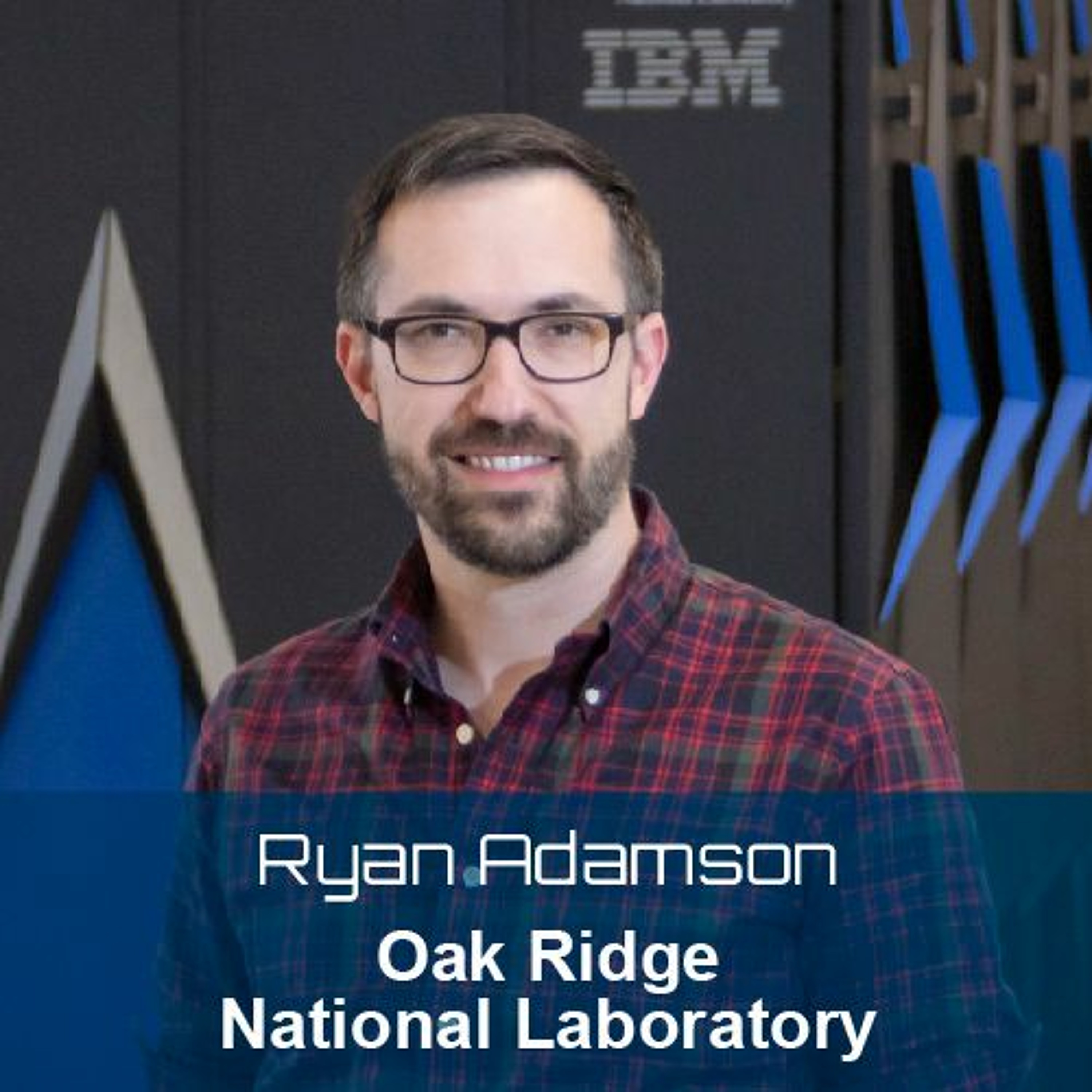 Exascale Computing Project PodcastEpisode 78: Ensuring the Exascale Ecosystem Lands Successfully at Energy Department Facilities.Episode Notes: The Exascale Computing Project Software Deployment at Facilities project tests and verifies software functionality and efficiency.2021-03-2317 min
Exascale Computing Project PodcastEpisode 78: Ensuring the Exascale Ecosystem Lands Successfully at Energy Department Facilities.Episode Notes: The Exascale Computing Project Software Deployment at Facilities project tests and verifies software functionality and efficiency.2021-03-2317 min Technology UntangledSupercomputing: An exascale-sized challenge?Supercomputers are big, they're noisy, and they use more energy than a small town. They don't look like much from the outside, but the inside tells a different story! Supercomputers are helping us solve some of the world's biggest problems, and they could be coming soon to a desktop near you...Today, host Michael Bird goes down the rabbit hole of high-performance computing. We talk parallel processing, exascale and the democratisation of HPC with Bill Mannel, HPE. Andrew Emerson PhD from Cineca tells us about how supercomputers led the charge to find therapeutic drugs against the coronavirus...2021-03-2339 min
Technology UntangledSupercomputing: An exascale-sized challenge?Supercomputers are big, they're noisy, and they use more energy than a small town. They don't look like much from the outside, but the inside tells a different story! Supercomputers are helping us solve some of the world's biggest problems, and they could be coming soon to a desktop near you...Today, host Michael Bird goes down the rabbit hole of high-performance computing. We talk parallel processing, exascale and the democratisation of HPC with Bill Mannel, HPE. Andrew Emerson PhD from Cineca tells us about how supercomputers led the charge to find therapeutic drugs against the coronavirus...2021-03-2339 min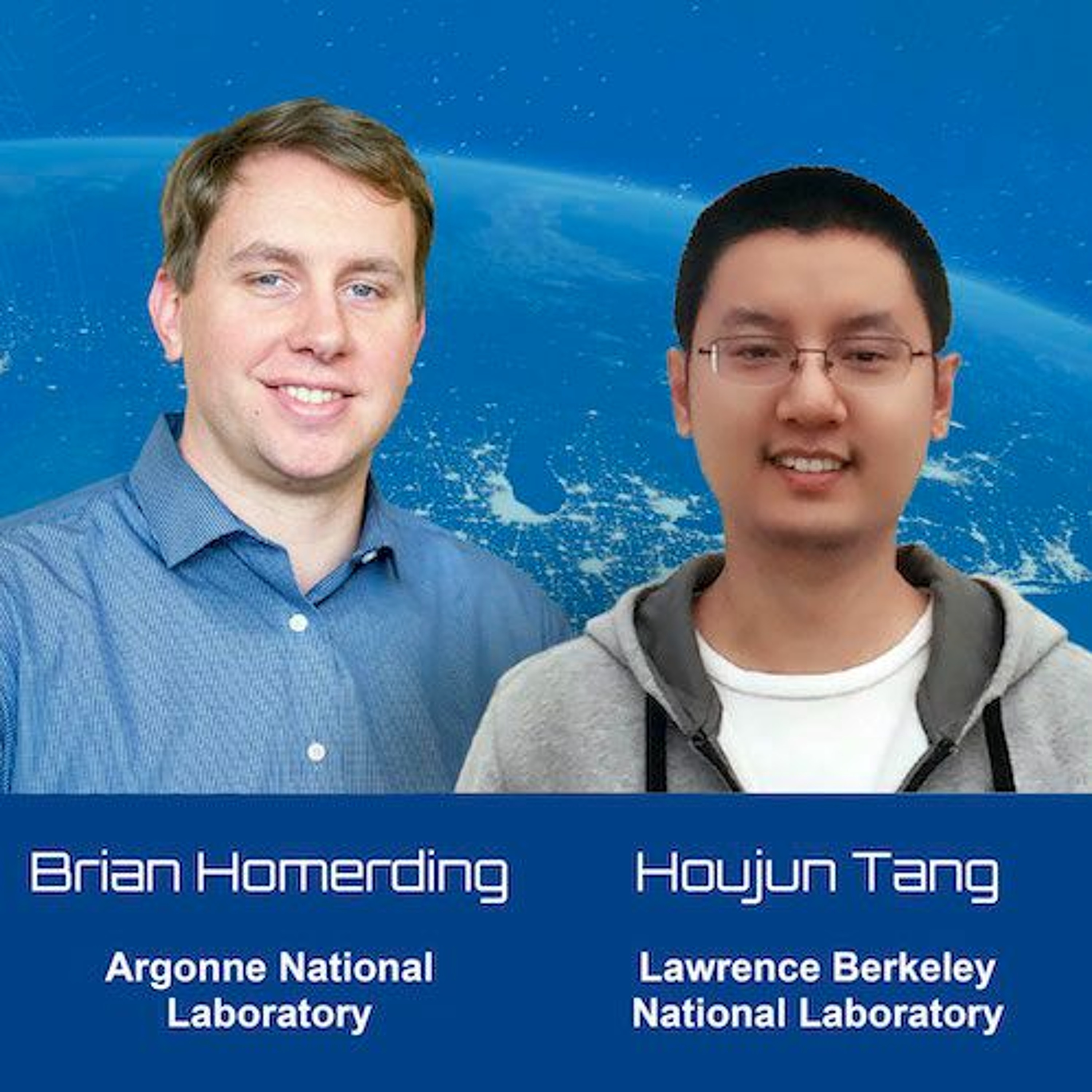 Exascale Computing Project PodcastEpisode 77: Let’s Talk Exascale Code Development: EQSIMEpisode Notes: ECP’s podcast series on preparing code for the Aurora exascale system begins by focusing on an earthquake risk assessment application.2021-02-0818 min
Exascale Computing Project PodcastEpisode 77: Let’s Talk Exascale Code Development: EQSIMEpisode Notes: ECP’s podcast series on preparing code for the Aurora exascale system begins by focusing on an earthquake risk assessment application.2021-02-0818 min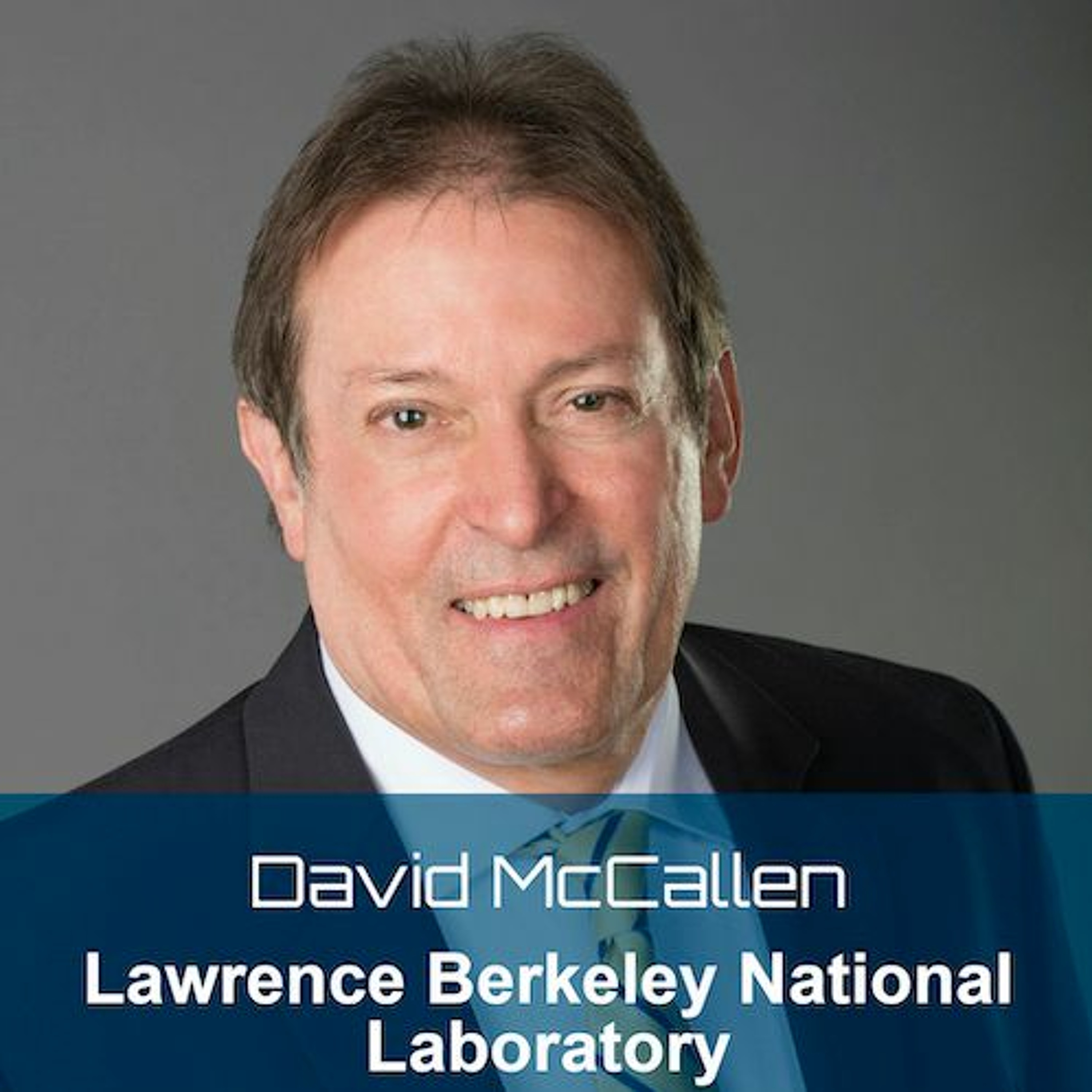 Exascale Computing Project PodcastEpisode 76: Exploiting Exascale Computing to Make Earthquake Simulation Codes More PowerfulEpisode Notes: Simulating earthquake processes from end to end is key to being able to design bridges and buildings to be more resilient to earthquakes.2020-12-2216 min
Exascale Computing Project PodcastEpisode 76: Exploiting Exascale Computing to Make Earthquake Simulation Codes More PowerfulEpisode Notes: Simulating earthquake processes from end to end is key to being able to design bridges and buildings to be more resilient to earthquakes.2020-12-2216 min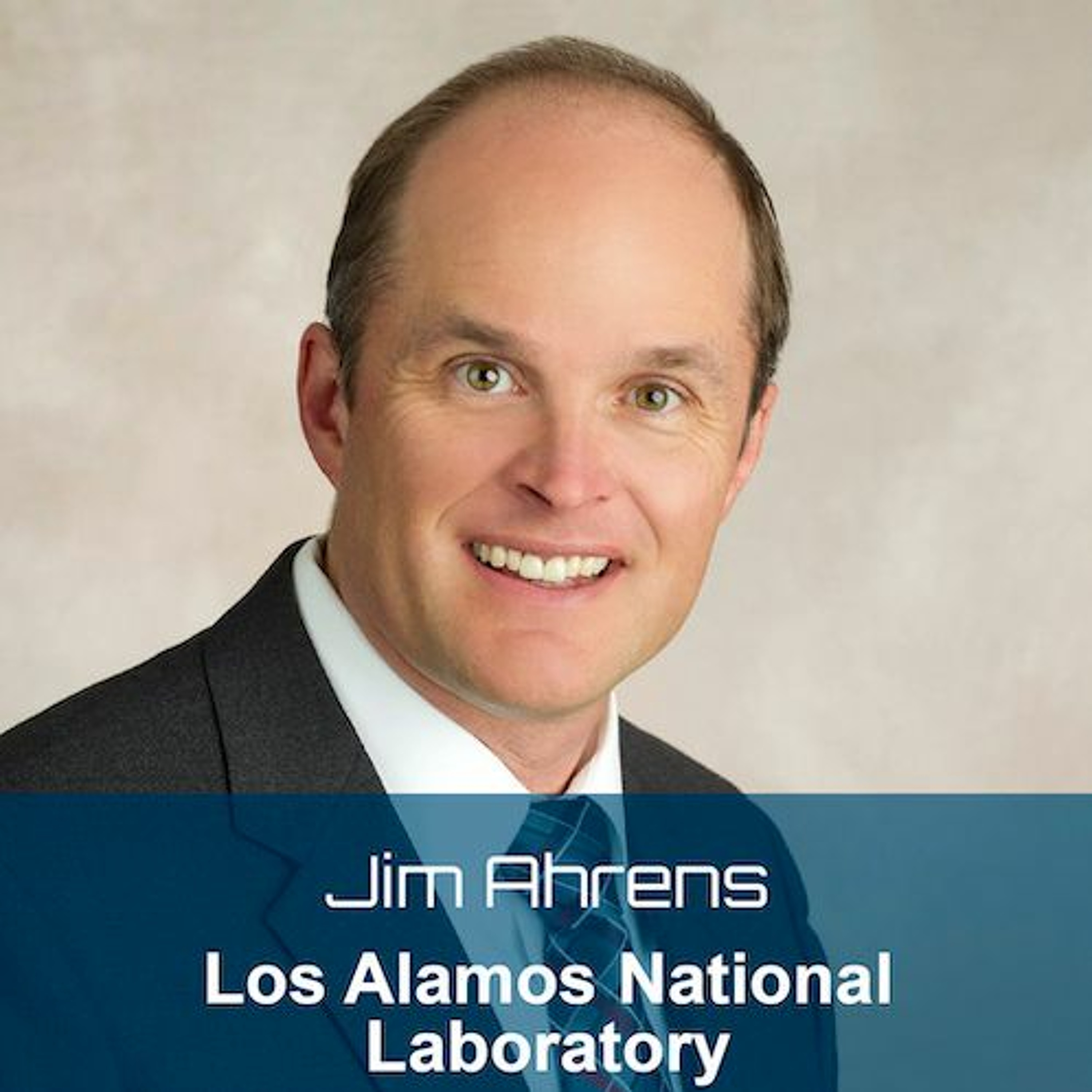 Exascale Computing Project PodcastEpisode 75: Supporting Scientific Discovery and Data Analysis in the Exascale EraEpisode Notes: ECP's Data and Visualization portfolio is delivering data management software to store, save state, share, and facilitate the analysis of exascale data.2020-12-0318 min
Exascale Computing Project PodcastEpisode 75: Supporting Scientific Discovery and Data Analysis in the Exascale EraEpisode Notes: ECP's Data and Visualization portfolio is delivering data management software to store, save state, share, and facilitate the analysis of exascale data.2020-12-0318 min Peggy Smedley ShowExascale: The Future of ComputingPeggy and Daniel Ernst, distinguished technologist, high-performance computing & AI, Hewlett Packard Enterprise, talk about the future of computing—exascale. He says one of the core pieces of exascale is the rate at which we can do calculations. They also discuss: Some examples of what people can do with exascale computing—such as weather predictions. The history of exascale computing and where we are at today. What is coming in the next year—and decade—with exascale computing. 000000000000000000.com (10.20.20 - #691) IoT, Internet of Things, Peggy Smedley, artificial intelligence, machine learning, big data, digital...2020-10-2225 min
Peggy Smedley ShowExascale: The Future of ComputingPeggy and Daniel Ernst, distinguished technologist, high-performance computing & AI, Hewlett Packard Enterprise, talk about the future of computing—exascale. He says one of the core pieces of exascale is the rate at which we can do calculations. They also discuss: Some examples of what people can do with exascale computing—such as weather predictions. The history of exascale computing and where we are at today. What is coming in the next year—and decade—with exascale computing. 000000000000000000.com (10.20.20 - #691) IoT, Internet of Things, Peggy Smedley, artificial intelligence, machine learning, big data, digital...2020-10-2225 min Peggy Smedley ShowExascale: The Future of ComputingPeggy and Daniel Ernst, distinguished technologist, high-performance computing & AI, Hewlett Packard Enterprise, talk about the future of computing—exascale. He says one of the core pieces of exascale is the rate at which we can do calculations. They also discuss: Some examples of what people can do with exascale computing—such as weather predictions. The history of exascale computing and where we are at today. What is coming in the next year—and decade—with exascale computing. 000000000000000000.com (10.20.20 - #691) IoT, Internet of Things, Peggy Smedley, artificial intelligence, machine learning, big data, digital...2020-10-2225 min
Peggy Smedley ShowExascale: The Future of ComputingPeggy and Daniel Ernst, distinguished technologist, high-performance computing & AI, Hewlett Packard Enterprise, talk about the future of computing—exascale. He says one of the core pieces of exascale is the rate at which we can do calculations. They also discuss: Some examples of what people can do with exascale computing—such as weather predictions. The history of exascale computing and where we are at today. What is coming in the next year—and decade—with exascale computing. 000000000000000000.com (10.20.20 - #691) IoT, Internet of Things, Peggy Smedley, artificial intelligence, machine learning, big data, digital...2020-10-2225 min Exascale Computing Project PodcastEpisode 73: Intel Executive Discusses Engagement with Energy Department, Argonne, and ECPEpisode Notes: Intel executive Trish Damkroger shares her excitement over exascale computing and the design of the Aurora supercomputer.2020-10-1507 min
Exascale Computing Project PodcastEpisode 73: Intel Executive Discusses Engagement with Energy Department, Argonne, and ECPEpisode Notes: Intel executive Trish Damkroger shares her excitement over exascale computing and the design of the Aurora supercomputer.2020-10-1507 min Exascale Computing Project PodcastEpisode 72: Special—ECP Leadership Discusses Project Highlights, Challenges, & the Expected ImpactEpisode Notes: Members of the Exascale Computing Project leadership team summarize the state of the project and delve into the major accomplishments.2020-08-191h 26
Exascale Computing Project PodcastEpisode 72: Special—ECP Leadership Discusses Project Highlights, Challenges, & the Expected ImpactEpisode Notes: Members of the Exascale Computing Project leadership team summarize the state of the project and delve into the major accomplishments.2020-08-191h 26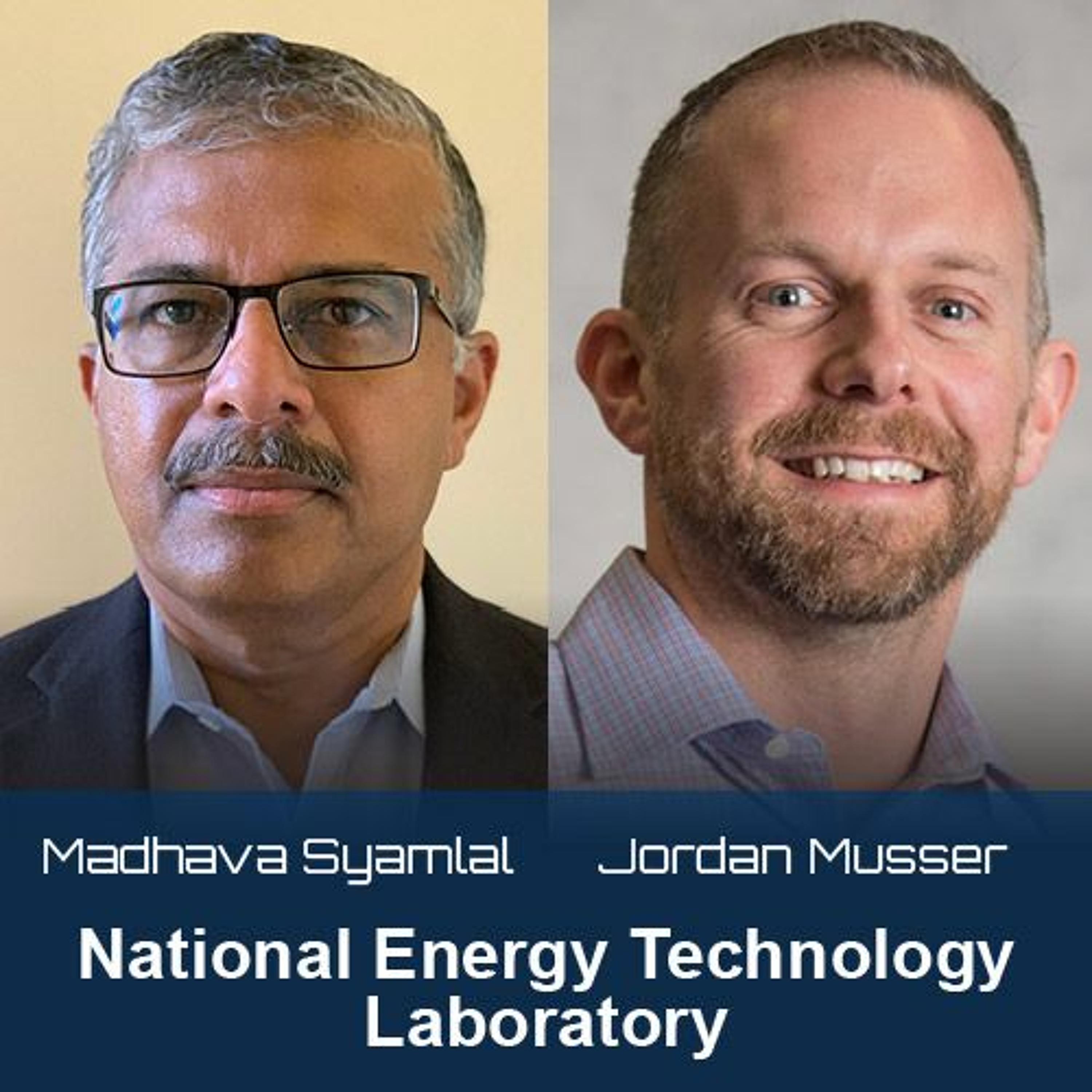 Exascale Computing Project PodcastEpisode 71: Scaling up Clean Fossil Fuel Combustion Technology for Industrial UseEpisode Notes: Exascale computing could help researchers prepare promising carbon-capture and storage technologies to go from the lab to commercial settings.2020-07-2233 min
Exascale Computing Project PodcastEpisode 71: Scaling up Clean Fossil Fuel Combustion Technology for Industrial UseEpisode Notes: Exascale computing could help researchers prepare promising carbon-capture and storage technologies to go from the lab to commercial settings.2020-07-2233 min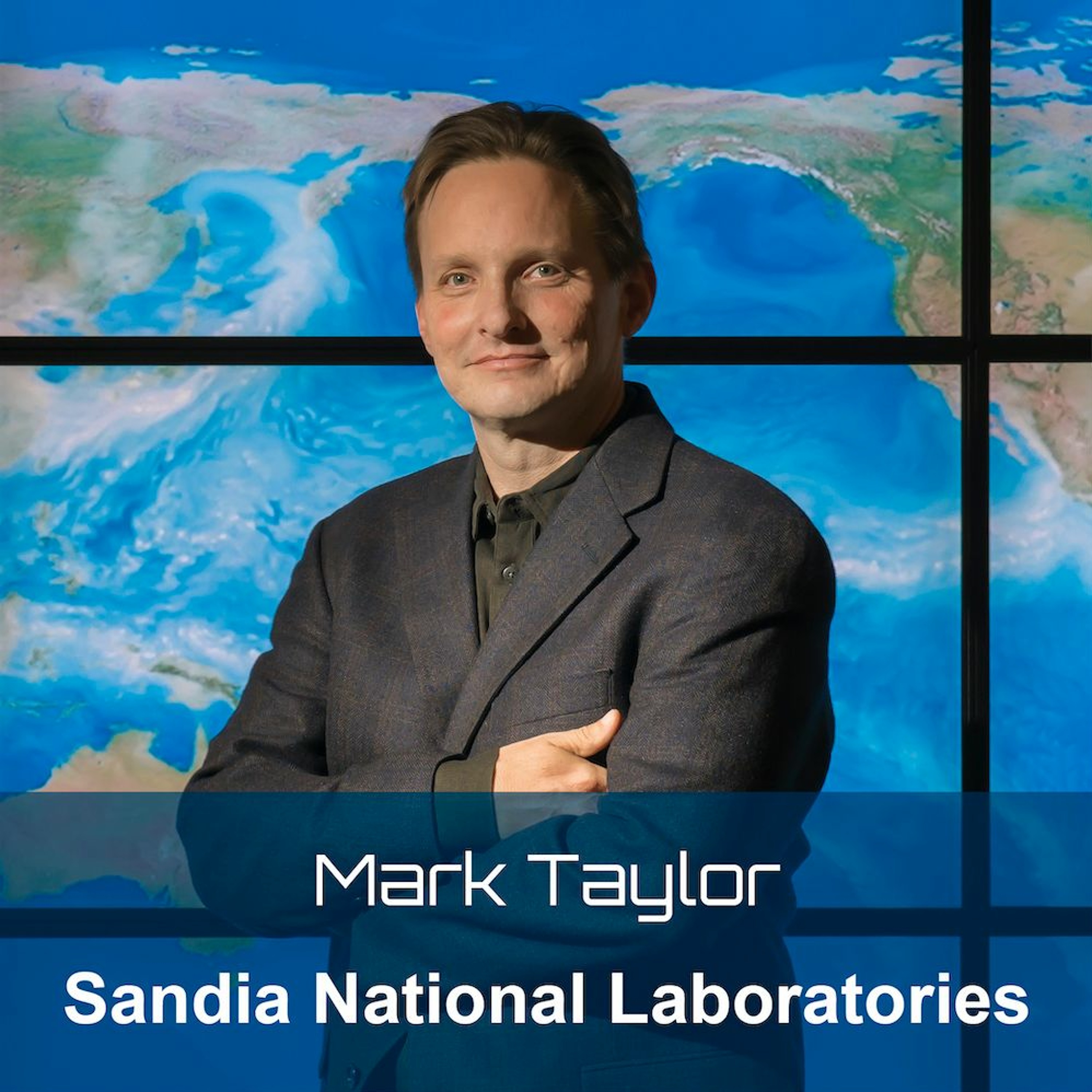 Exascale Computing Project PodcastEpisode 70: E3SM-MMF: Forecasting Water Resources and Severe Weather with Greater ConfidenceEpisode Notes: By exploiting the power and performance advantages of GPUs and exascale computing, researchers aim to better predict changes to Earth’s water cycles.2020-06-2517 min
Exascale Computing Project PodcastEpisode 70: E3SM-MMF: Forecasting Water Resources and Severe Weather with Greater ConfidenceEpisode Notes: By exploiting the power and performance advantages of GPUs and exascale computing, researchers aim to better predict changes to Earth’s water cycles.2020-06-2517 min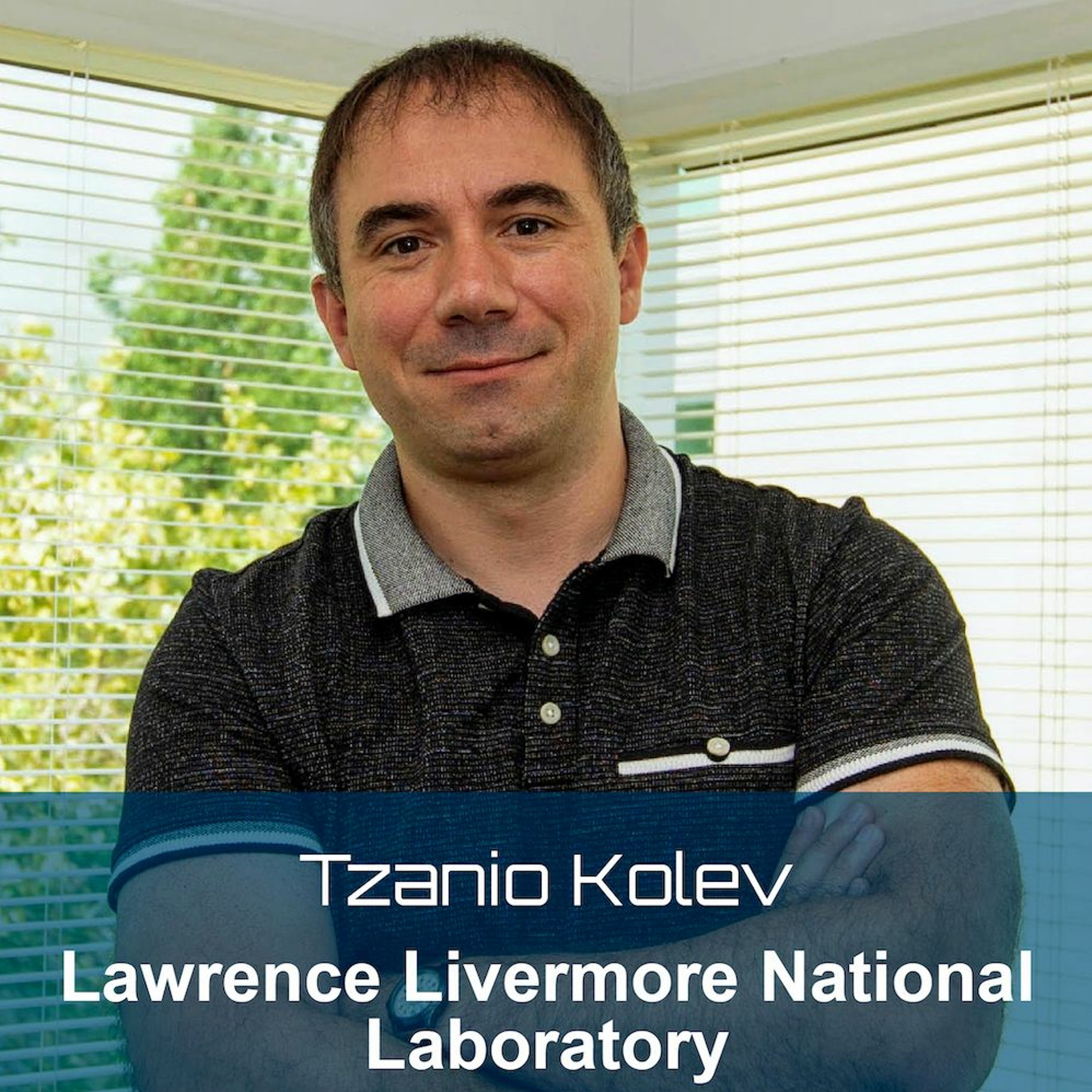 Exascale Computing Project PodcastEpisode 69: Major Update of the MFEM Finite Element Library Broadens GPU SupportEpisode Notes: The Center for Efficient Exascale Discretizations (CEED) recently released version 4.1 of its MFEM software, with features for exascale.2020-06-0806 min
Exascale Computing Project PodcastEpisode 69: Major Update of the MFEM Finite Element Library Broadens GPU SupportEpisode Notes: The Center for Efficient Exascale Discretizations (CEED) recently released version 4.1 of its MFEM software, with features for exascale.2020-06-0806 min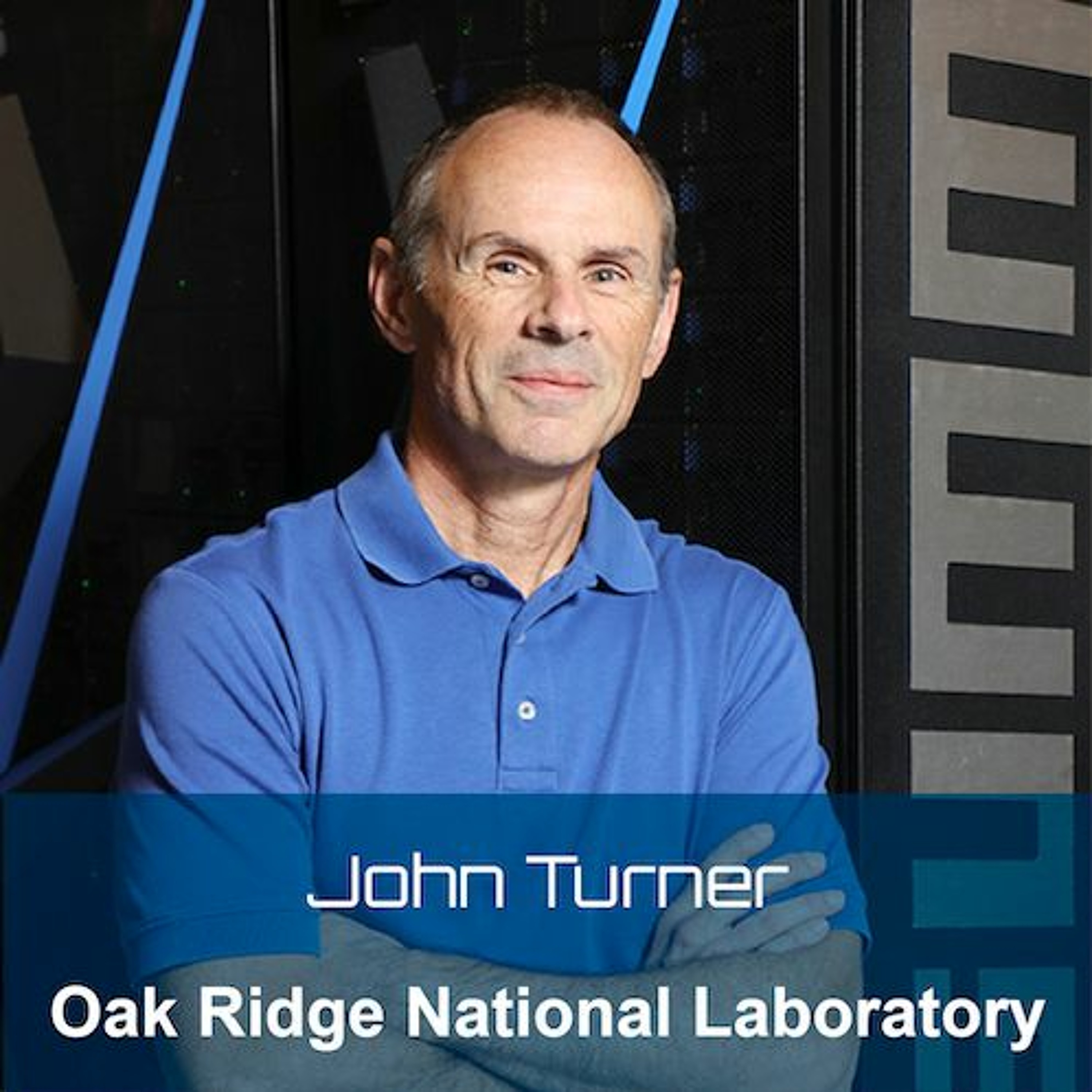 Exascale Computing Project PodcastEpisode 68: ExaAM Project Aims to Transform Additive Manufacturing through Exascale SimulationEpisode Notes: John Turner of Oak Ridge National Laboratory provides a look at additive manufacturing and the ExaAM project from different angles.2020-05-2725 min
Exascale Computing Project PodcastEpisode 68: ExaAM Project Aims to Transform Additive Manufacturing through Exascale SimulationEpisode Notes: John Turner of Oak Ridge National Laboratory provides a look at additive manufacturing and the ExaAM project from different angles.2020-05-2725 min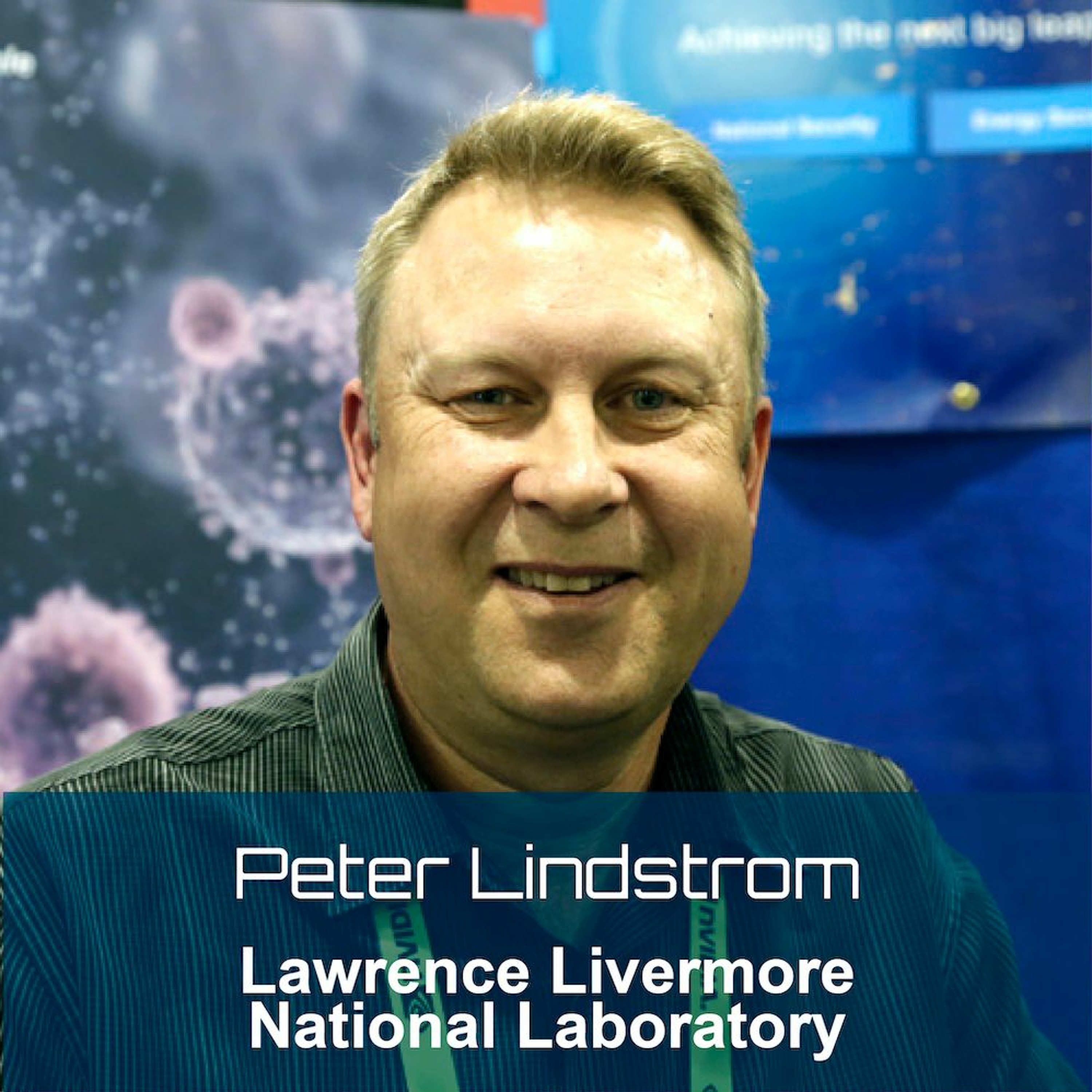 Exascale Computing Project PodcastEpisode 66: Reducing the Memory Footprint and Data Movement on Exascale SystemsEpisode Notes: The ZFP software development effort is tackling the critical task of overcoming the performance cost of data movement for exascale computing.2020-04-1612 min
Exascale Computing Project PodcastEpisode 66: Reducing the Memory Footprint and Data Movement on Exascale SystemsEpisode Notes: The ZFP software development effort is tackling the critical task of overcoming the performance cost of data movement for exascale computing.2020-04-1612 min Exascale Computing Project PodcastEpisode 65: Accelerating the Adoption of Container Technologies for Exascale ComputingEpisode Notes: Container technology has provided greater software flexibility, reliability, ease of deployment, and portability—an ECP project aims to deliver it for exascale computing systems.2020-04-0707 min
Exascale Computing Project PodcastEpisode 65: Accelerating the Adoption of Container Technologies for Exascale ComputingEpisode Notes: Container technology has provided greater software flexibility, reliability, ease of deployment, and portability—an ECP project aims to deliver it for exascale computing systems.2020-04-0707 min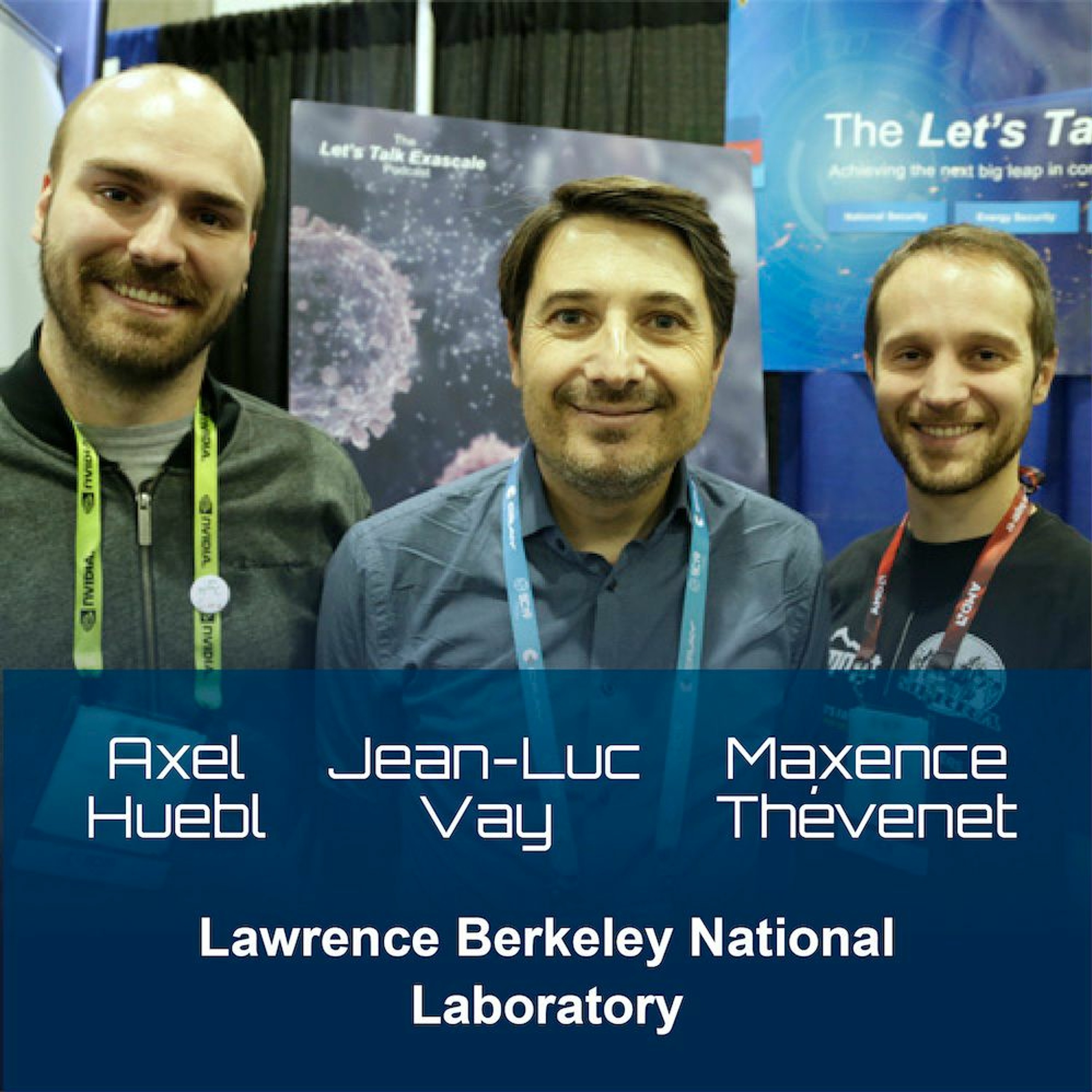 Exascale Computing Project PodcastEpisode 64: Creating the Ability to Design Smaller, Cheaper Particle AcceleratorsEpisode Notes: The WarpX project is developing an exascale application for plasma accelerator research to pave the way for new virtual experiments.2020-03-2609 min
Exascale Computing Project PodcastEpisode 64: Creating the Ability to Design Smaller, Cheaper Particle AcceleratorsEpisode Notes: The WarpX project is developing an exascale application for plasma accelerator research to pave the way for new virtual experiments.2020-03-2609 min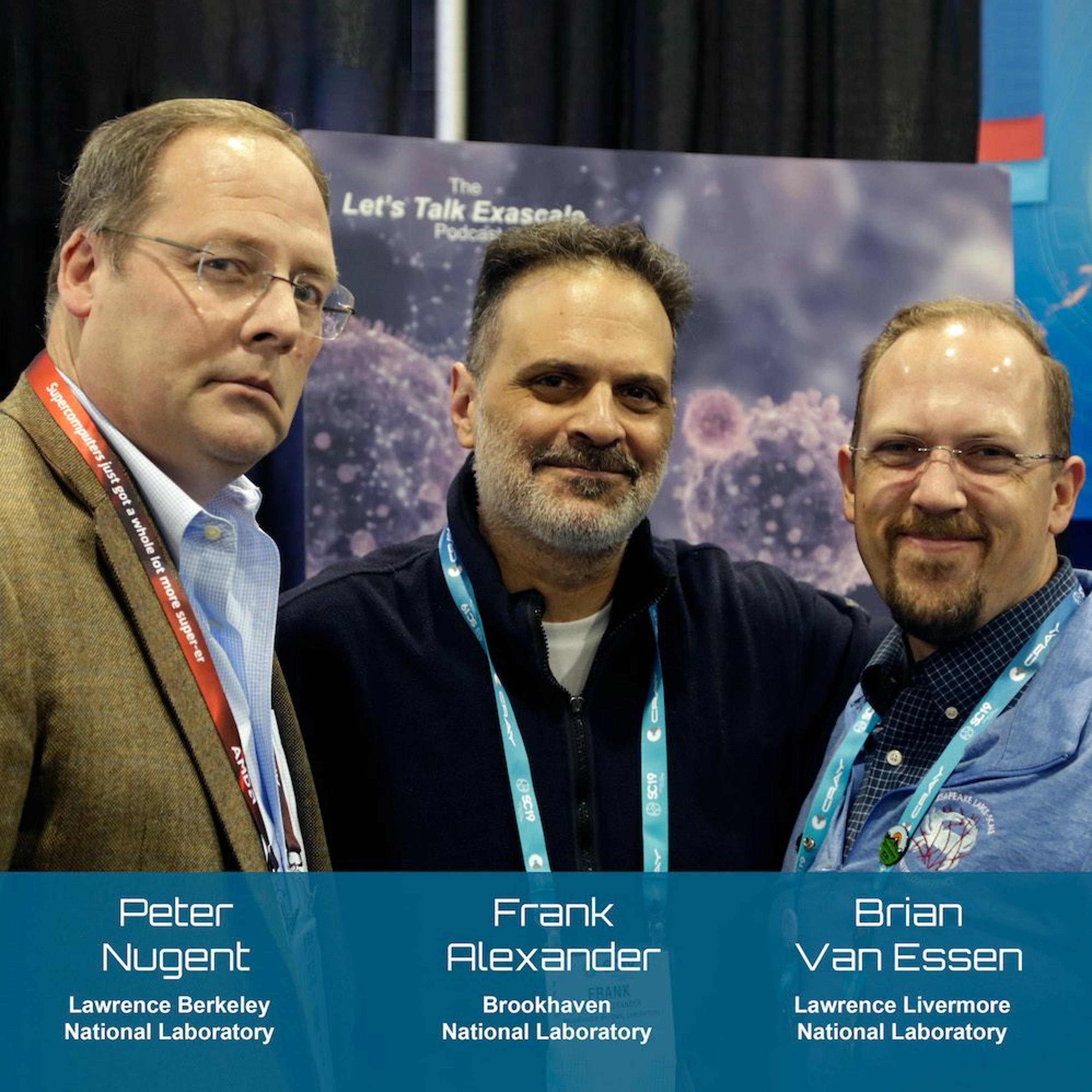 Exascale Computing Project PodcastEpisode 63: Delivering Exascale Machine Learning Algorithms and Tools for Scientific ResearchEpisode Notes: Machine learning, artificial intelligence, and data analytics are converging with high-performance computing to advance scientific discovery.2020-03-1210 min
Exascale Computing Project PodcastEpisode 63: Delivering Exascale Machine Learning Algorithms and Tools for Scientific ResearchEpisode Notes: Machine learning, artificial intelligence, and data analytics are converging with high-performance computing to advance scientific discovery.2020-03-1210 min Exascale Computing Project PodcastEpisode 62: Collaborative Community Impacts High-Performance Computing Programming EnvironmentsEpisode Notes: LLVM within the US Department of Energy’s Exascale Computing Project is an open-source collaboration project that develops a compiler infrastructure.2020-03-0610 min
Exascale Computing Project PodcastEpisode 62: Collaborative Community Impacts High-Performance Computing Programming EnvironmentsEpisode Notes: LLVM within the US Department of Energy’s Exascale Computing Project is an open-source collaboration project that develops a compiler infrastructure.2020-03-0610 min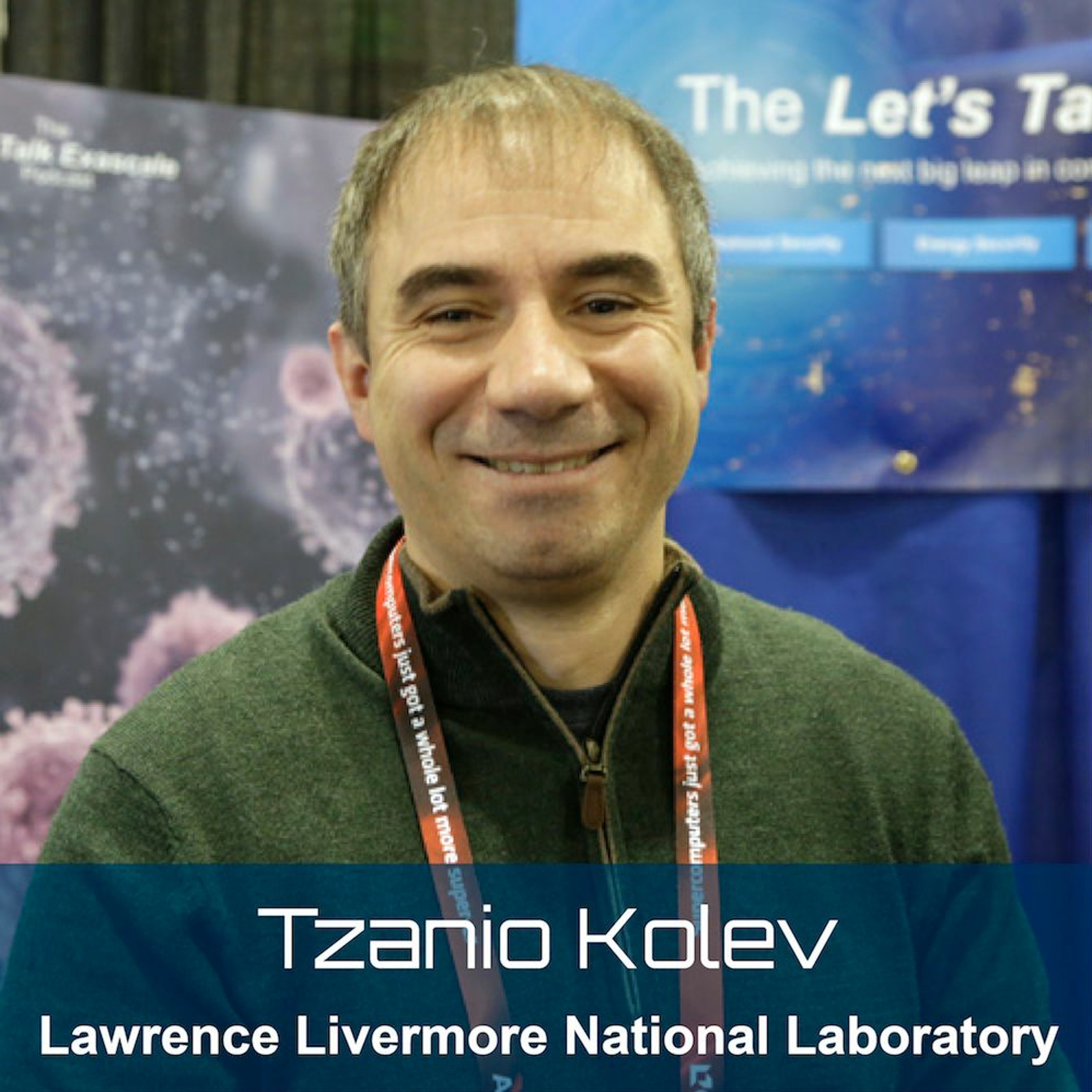 Exascale Computing Project PodcastEpisode 61: Helping Applications Use Future Architectures with First-Rate Discretization LibrariesEpisode Notes: The Center for Efficient Exascale Discretizations (CEED) is a hub for high-order mathematical methods to increase application efficiency and performance.2020-02-2609 min
Exascale Computing Project PodcastEpisode 61: Helping Applications Use Future Architectures with First-Rate Discretization LibrariesEpisode Notes: The Center for Efficient Exascale Discretizations (CEED) is a hub for high-order mathematical methods to increase application efficiency and performance.2020-02-2609 min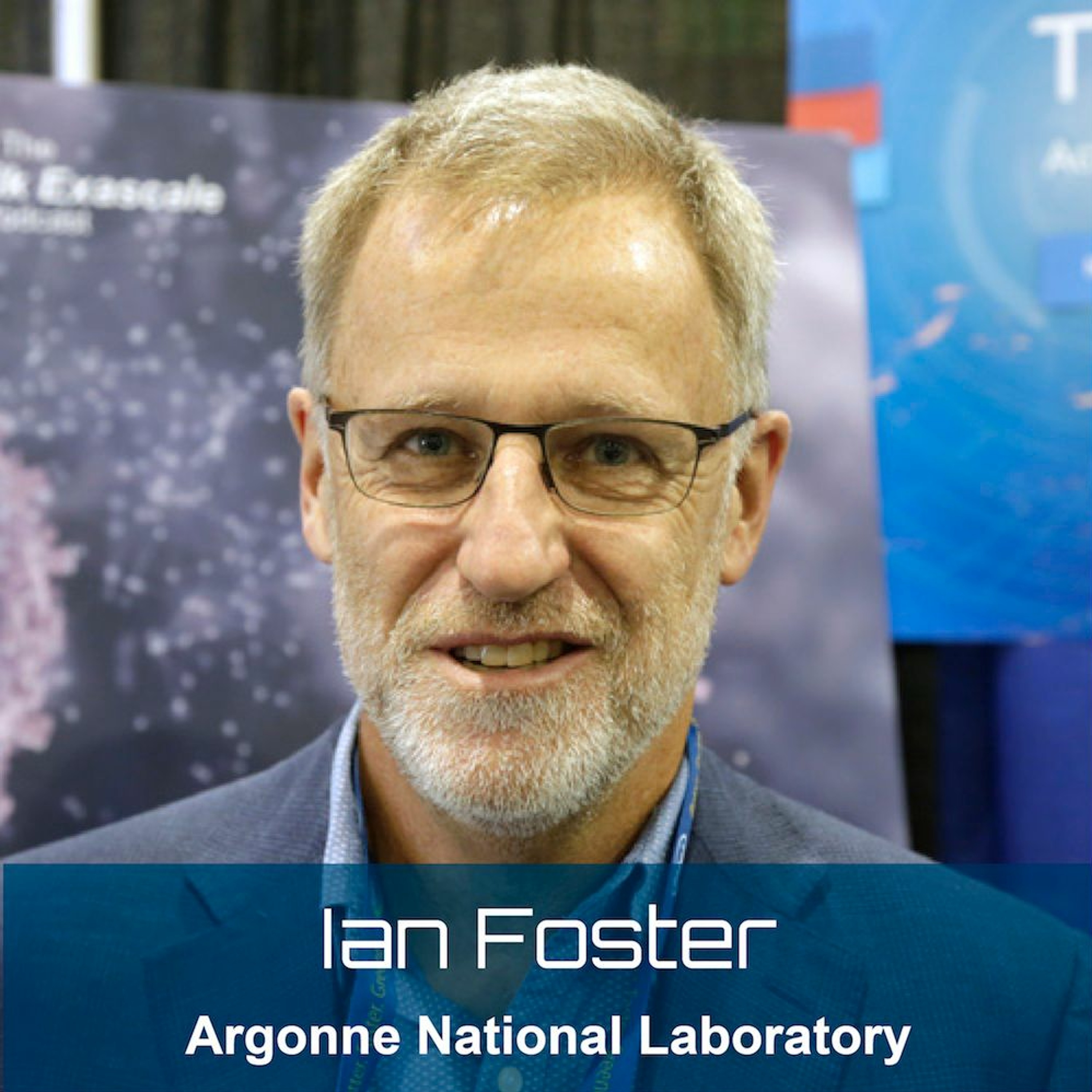 Exascale Computing Project PodcastEpisode 59: Ushering in a New Approach to Scientific ComputingEpisode Notes: CODAR, an Exascale Computing Project co-design center, aims to produce an infrastructure for online data analysis and reduction.2020-02-1407 min
Exascale Computing Project PodcastEpisode 59: Ushering in a New Approach to Scientific ComputingEpisode Notes: CODAR, an Exascale Computing Project co-design center, aims to produce an infrastructure for online data analysis and reduction.2020-02-1407 min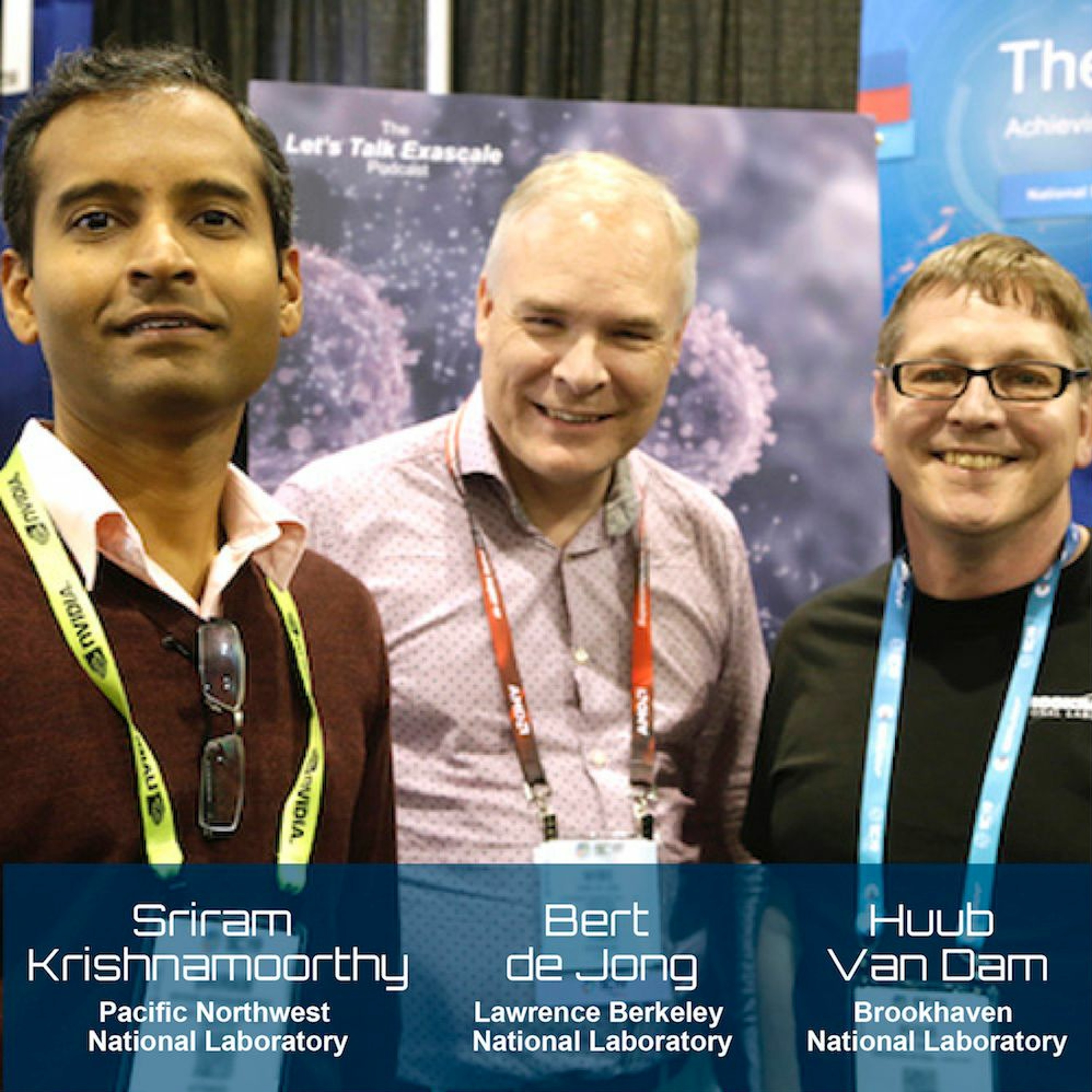 Exascale Computing Project PodcastEpisode 55: Computational Chemistry Software Package for Larger Simulations and Exascale SpeedEpisode Notes: A collaborative team is working to get NWChem ready to run on exascale machines and to provide a starting point for future code development.2020-01-2707 min
Exascale Computing Project PodcastEpisode 55: Computational Chemistry Software Package for Larger Simulations and Exascale SpeedEpisode Notes: A collaborative team is working to get NWChem ready to run on exascale machines and to provide a starting point for future code development.2020-01-2707 min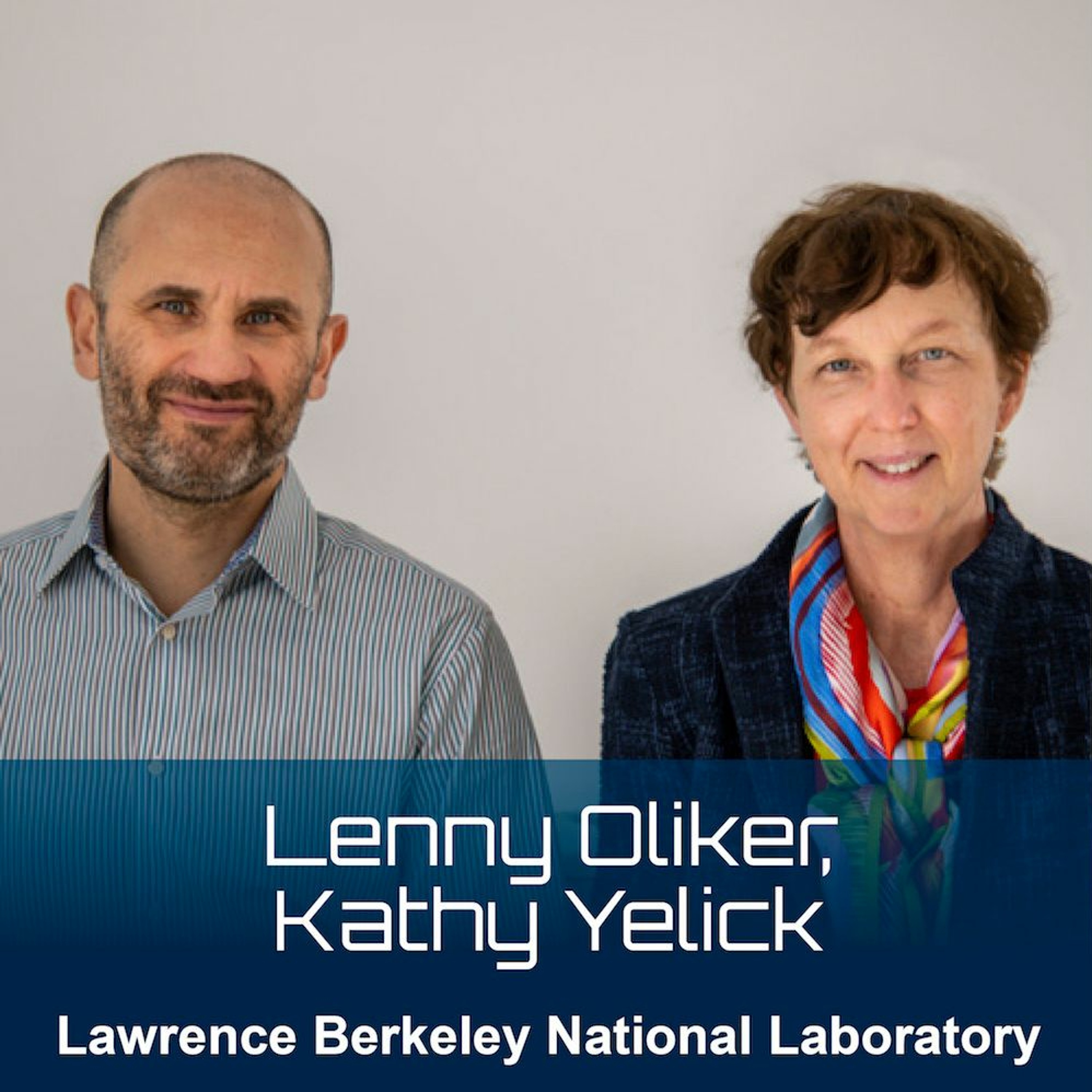 Exascale Computing Project PodcastEpisode 54: Providing Exascale Solutions for the Assembly and Analysis of Metagenomic DataEpisode Notes: Kathy Yelick and Lenny Oliker of Lawrence Berkeley National Laboratory explain why understanding microbial communities is so important.2020-01-2112 min
Exascale Computing Project PodcastEpisode 54: Providing Exascale Solutions for the Assembly and Analysis of Metagenomic DataEpisode Notes: Kathy Yelick and Lenny Oliker of Lawrence Berkeley National Laboratory explain why understanding microbial communities is so important.2020-01-2112 min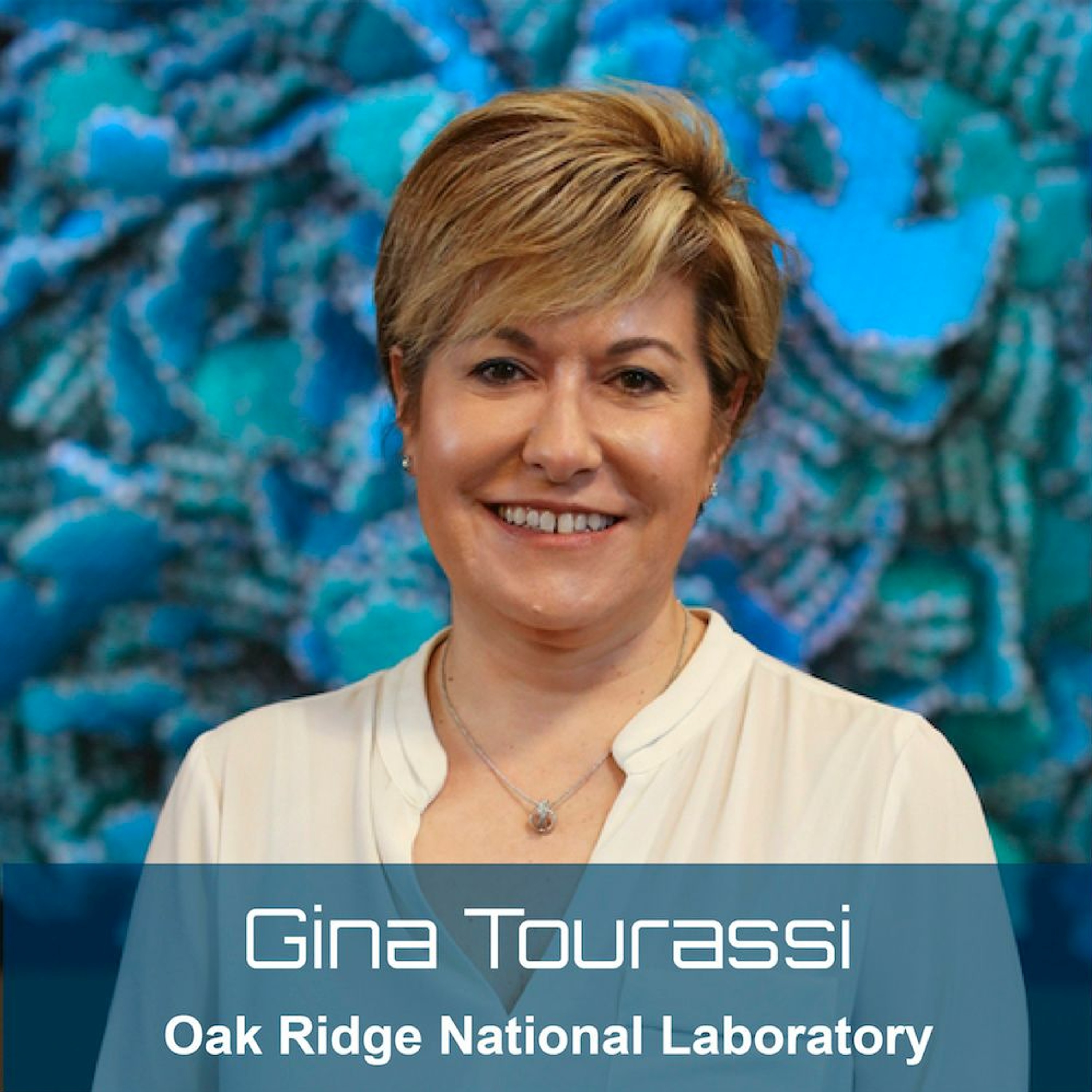 Exascale Computing Project PodcastEpisode 53: Developing a Codebase for Deep Learning on Supercomputers to Fight CancerEpisode Notes: Gina Tourassi discusses the Oak Ridge National Laboratory effort within the Exascale Deep Learning–Enabled Precision Medicine for Cancer (CANDLE) project.2020-01-1614 min
Exascale Computing Project PodcastEpisode 53: Developing a Codebase for Deep Learning on Supercomputers to Fight CancerEpisode Notes: Gina Tourassi discusses the Oak Ridge National Laboratory effort within the Exascale Deep Learning–Enabled Precision Medicine for Cancer (CANDLE) project.2020-01-1614 min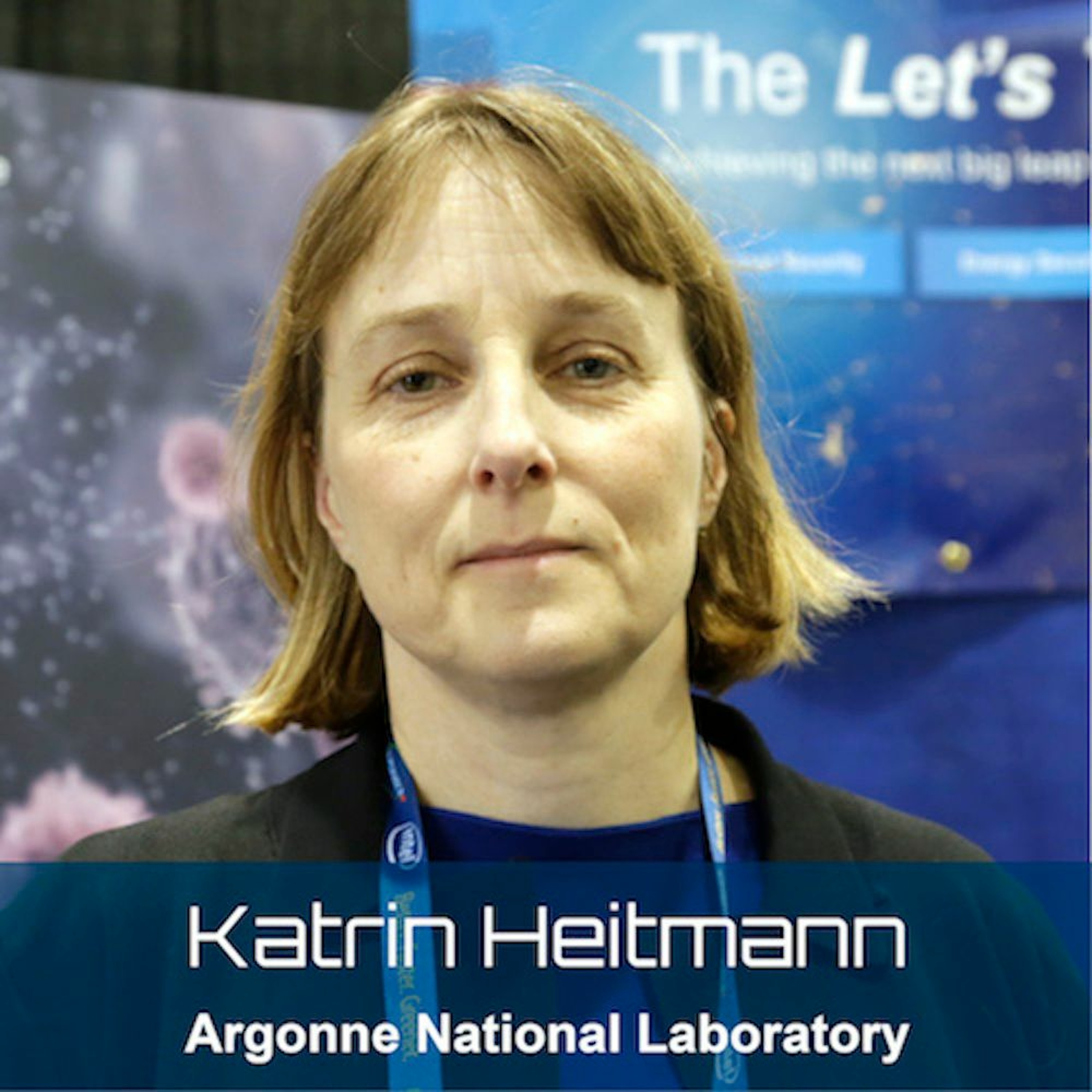 Exascale Computing Project PodcastEpisode 52: Aiming to be among the First Applications to Run at ExascaleEpisode Notes: The ExaSky project conducts extreme-scale simulations to further our understanding of the makeup and evolution of the universe.2020-01-1308 min
Exascale Computing Project PodcastEpisode 52: Aiming to be among the First Applications to Run at ExascaleEpisode Notes: The ExaSky project conducts extreme-scale simulations to further our understanding of the makeup and evolution of the universe.2020-01-1308 min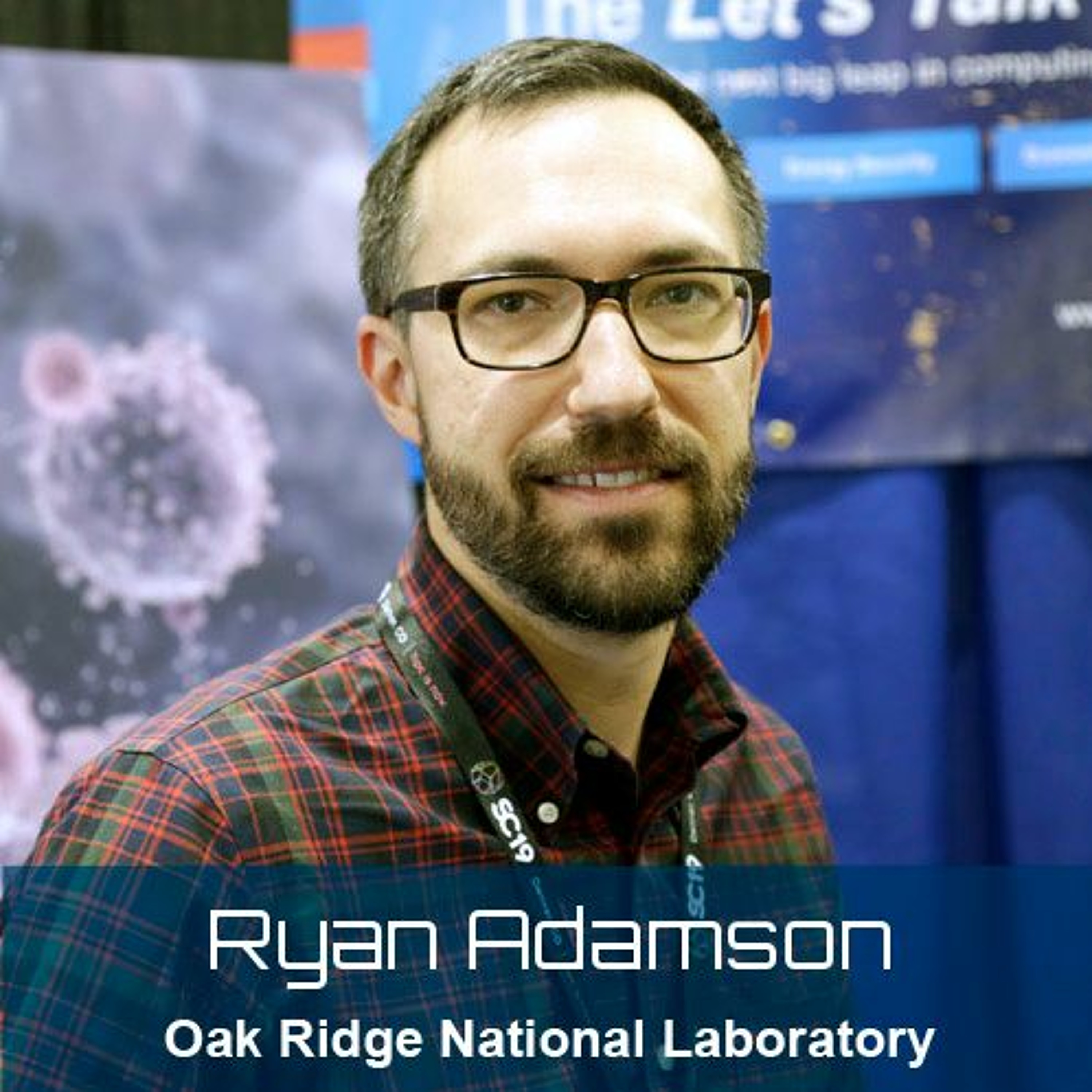 Exascale Computing Project PodcastEpisode 50: The Complex Task of Software Deployment and Continuous Integration at FacilitiesEpisode Notes: Successful installation of ECP software requires ensuring speedup for exascale, managing dependencies and versions, and fostering great team communication.2020-01-0305 min
Exascale Computing Project PodcastEpisode 50: The Complex Task of Software Deployment and Continuous Integration at FacilitiesEpisode Notes: Successful installation of ECP software requires ensuring speedup for exascale, managing dependencies and versions, and fostering great team communication.2020-01-0305 min Exascale Computing Project PodcastEpisode 49: Optimizing Math Libraries to Prepare Applications for Exascale ComputingEpisode Notes: This discussion examines the xSDK4ECP and hypre projects, which are integrally connected to Exascale Computing Project applications.2020-01-0214 min
Exascale Computing Project PodcastEpisode 49: Optimizing Math Libraries to Prepare Applications for Exascale ComputingEpisode Notes: This discussion examines the xSDK4ECP and hypre projects, which are integrally connected to Exascale Computing Project applications.2020-01-0214 min Exascale Computing Project PodcastEpisode 48: An Alternative to OpenMP and an On-Ramp to Future C++ StandardsEpisode Notes: Christian Trott of Sandia National Laboratories shares insights about Kokkos, a programming model for numerous Exascale Computing Project applications.2019-12-1810 min
Exascale Computing Project PodcastEpisode 48: An Alternative to OpenMP and an On-Ramp to Future C++ StandardsEpisode Notes: Christian Trott of Sandia National Laboratories shares insights about Kokkos, a programming model for numerous Exascale Computing Project applications.2019-12-1810 min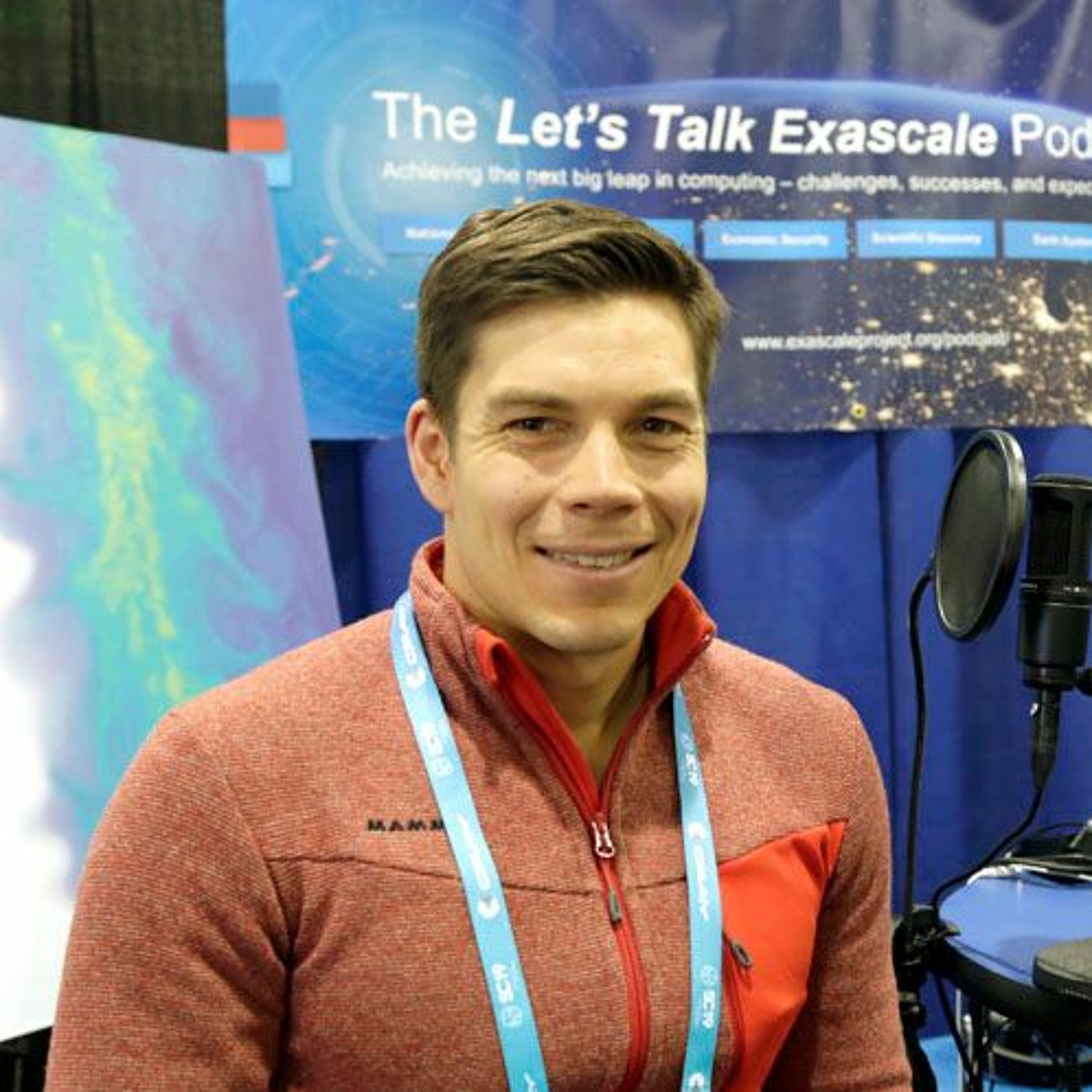 Exascale Computing Project PodcastEpisode 47: The Ginkgo Library Project is Developing a Vision for Multiprecision AlgorithmsEpisode Notes: Synchronized efforts within the Exascale Computing Project are exploring the use of multiprecision algorithms to achieve faster computation and communication.2019-12-1612 min
Exascale Computing Project PodcastEpisode 47: The Ginkgo Library Project is Developing a Vision for Multiprecision AlgorithmsEpisode Notes: Synchronized efforts within the Exascale Computing Project are exploring the use of multiprecision algorithms to achieve faster computation and communication.2019-12-1612 min Exascale Computing Project PodcastEpisode 41: Exascale Computing Could Drastically Boost the Capabilities of Energy ApplicationsEpisode Notes: Tom Evans, technical lead for ECP's Energy Applications projects, shares about the motivations, progress, and aspirations on the path to the exascale.2019-07-1509 min
Exascale Computing Project PodcastEpisode 41: Exascale Computing Could Drastically Boost the Capabilities of Energy ApplicationsEpisode Notes: Tom Evans, technical lead for ECP's Energy Applications projects, shares about the motivations, progress, and aspirations on the path to the exascale.2019-07-1509 min Exascale Computing Project PodcastEpisode 39: A Potential Revolution for X-Ray Free-Electron Laser Facilities.Episode Notes: Higher resolution, deeper insight, and faster information delivery via exascale computing could vastly improve imaging at X-ray free-electron laser facilities.2019-06-1009 min
Exascale Computing Project PodcastEpisode 39: A Potential Revolution for X-Ray Free-Electron Laser Facilities.Episode Notes: Higher resolution, deeper insight, and faster information delivery via exascale computing could vastly improve imaging at X-ray free-electron laser facilities.2019-06-1009 min Exascale Computing Project PodcastEpisode 38: Predictive Simulations May Point to the Best Design for Fusion ReactorsEpisode Notes: The leader of a project that plans to simulate all aspects of a fusion energy reactor said exascale computing capability will transform the effort.2019-06-0506 min
Exascale Computing Project PodcastEpisode 38: Predictive Simulations May Point to the Best Design for Fusion ReactorsEpisode Notes: The leader of a project that plans to simulate all aspects of a fusion energy reactor said exascale computing capability will transform the effort.2019-06-0506 min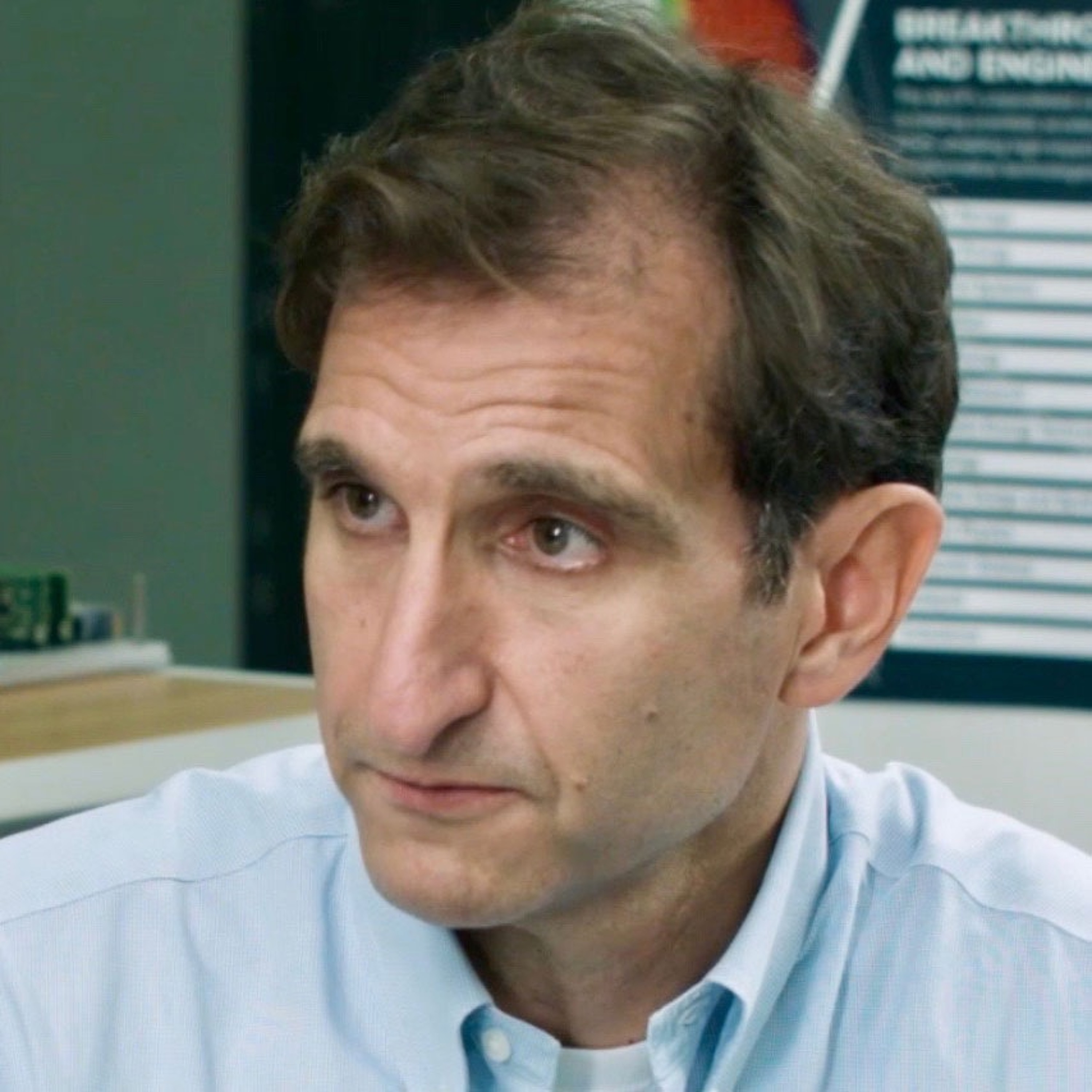 Exascale Computing Project PodcastEpisode 36: EZ Project-Providing Fast, Effective Exascale Lossy Compression for Scientific DataEpisode Notes: Senior computer scientist Franck Cappello leads an effort to compress and reduce the enormous scientific data sets that some of the ECP applications are producing.2019-02-2624 min
Exascale Computing Project PodcastEpisode 36: EZ Project-Providing Fast, Effective Exascale Lossy Compression for Scientific DataEpisode Notes: Senior computer scientist Franck Cappello leads an effort to compress and reduce the enormous scientific data sets that some of the ECP applications are producing.2019-02-2624 min Radio HPC: The Rich ReportA look back at the 2019 Exascale Computing Project Annual MeetingIn this podcast, Doug Kothe from the Exascale Computing Project describes the 2019 ECP Annual Meeting.
"The 2019 Exascale Computing Project (ECP) Annual Meeting will convene to highlight technical accomplishments that are being enabled by interactions and collaborations within the ECP community, which encompasses the ECP focus areas, U.S. Department of Energy high-performance computing facilities, and vendors. Networking opportunities will be emphasized and project participants asked to explore ways to leverage and share requirements with other ECP efforts. Key topics to be covered at the meeting are discussions of future systems, software stack plans, and interactions with facilities. Several parallel sessions...2019-02-0400 min
Radio HPC: The Rich ReportA look back at the 2019 Exascale Computing Project Annual MeetingIn this podcast, Doug Kothe from the Exascale Computing Project describes the 2019 ECP Annual Meeting.
"The 2019 Exascale Computing Project (ECP) Annual Meeting will convene to highlight technical accomplishments that are being enabled by interactions and collaborations within the ECP community, which encompasses the ECP focus areas, U.S. Department of Energy high-performance computing facilities, and vendors. Networking opportunities will be emphasized and project participants asked to explore ways to leverage and share requirements with other ECP efforts. Key topics to be covered at the meeting are discussions of future systems, software stack plans, and interactions with facilities. Several parallel sessions...2019-02-0400 min Exascale Computing Project PodcastEpisode 35: The Challenge of Continuous Integration of Software at Department of Energy FacilitiesEpisode Notes: Dave Montoya of Los Alamos National Laboratory and ECP explains aspects of ensuring software in development for exascale is successfully integrated at facilities.2019-01-1009 min
Exascale Computing Project PodcastEpisode 35: The Challenge of Continuous Integration of Software at Department of Energy FacilitiesEpisode Notes: Dave Montoya of Los Alamos National Laboratory and ECP explains aspects of ensuring software in development for exascale is successfully integrated at facilities.2019-01-1009 min Exascale Computing Project PodcastEpisode 29: IDEAS-ECP Helps Exascale Software Ecosystem Stay Optimally Productive and SustainableEpisode Notes: Mike Heroux and Lois Curfman McInnes discuss how the IDEAS (Interoperable Design of Extreme-Scale Application Software)-ECP helps ease the challenges of software development.2018-12-1417 min
Exascale Computing Project PodcastEpisode 29: IDEAS-ECP Helps Exascale Software Ecosystem Stay Optimally Productive and SustainableEpisode Notes: Mike Heroux and Lois Curfman McInnes discuss how the IDEAS (Interoperable Design of Extreme-Scale Application Software)-ECP helps ease the challenges of software development.2018-12-1417 min Exascale Computing Project PodcastEpisode 26: Helping Scientists Create and Use Very Large Volumes of Data in ECP ActivitiesEpisode Notes: A research effort called Datalib: Data Libraries and Services Enabling Exascale Science helps scientists by enabling them to access and share data across platforms, by providing information for troubleshooting, and by building new specialized data services.2018-11-0909 min
Exascale Computing Project PodcastEpisode 26: Helping Scientists Create and Use Very Large Volumes of Data in ECP ActivitiesEpisode Notes: A research effort called Datalib: Data Libraries and Services Enabling Exascale Science helps scientists by enabling them to access and share data across platforms, by providing information for troubleshooting, and by building new specialized data services.2018-11-0909 min Exascale Computing Project PodcastEpisode 24: Converging and Consolidating Innovation in Dense Linear Algebra SoftwareEpisode Notes: As the need to support hardware accelerators grows, ECP’s Software for Linear Algebra Targeting Exascale (SLATE) project is developing a replacement for the Scalable Linear Algebra PACKage (ScaLAPACK) library, the industry standard for dense linear algebra operations.
Story on ECP’s website: www.exascaleproject.org/converging-an…bra-software/2018-09-1316 min
Exascale Computing Project PodcastEpisode 24: Converging and Consolidating Innovation in Dense Linear Algebra SoftwareEpisode Notes: As the need to support hardware accelerators grows, ECP’s Software for Linear Algebra Targeting Exascale (SLATE) project is developing a replacement for the Scalable Linear Algebra PACKage (ScaLAPACK) library, the industry standard for dense linear algebra operations.
Story on ECP’s website: www.exascaleproject.org/converging-an…bra-software/2018-09-1316 min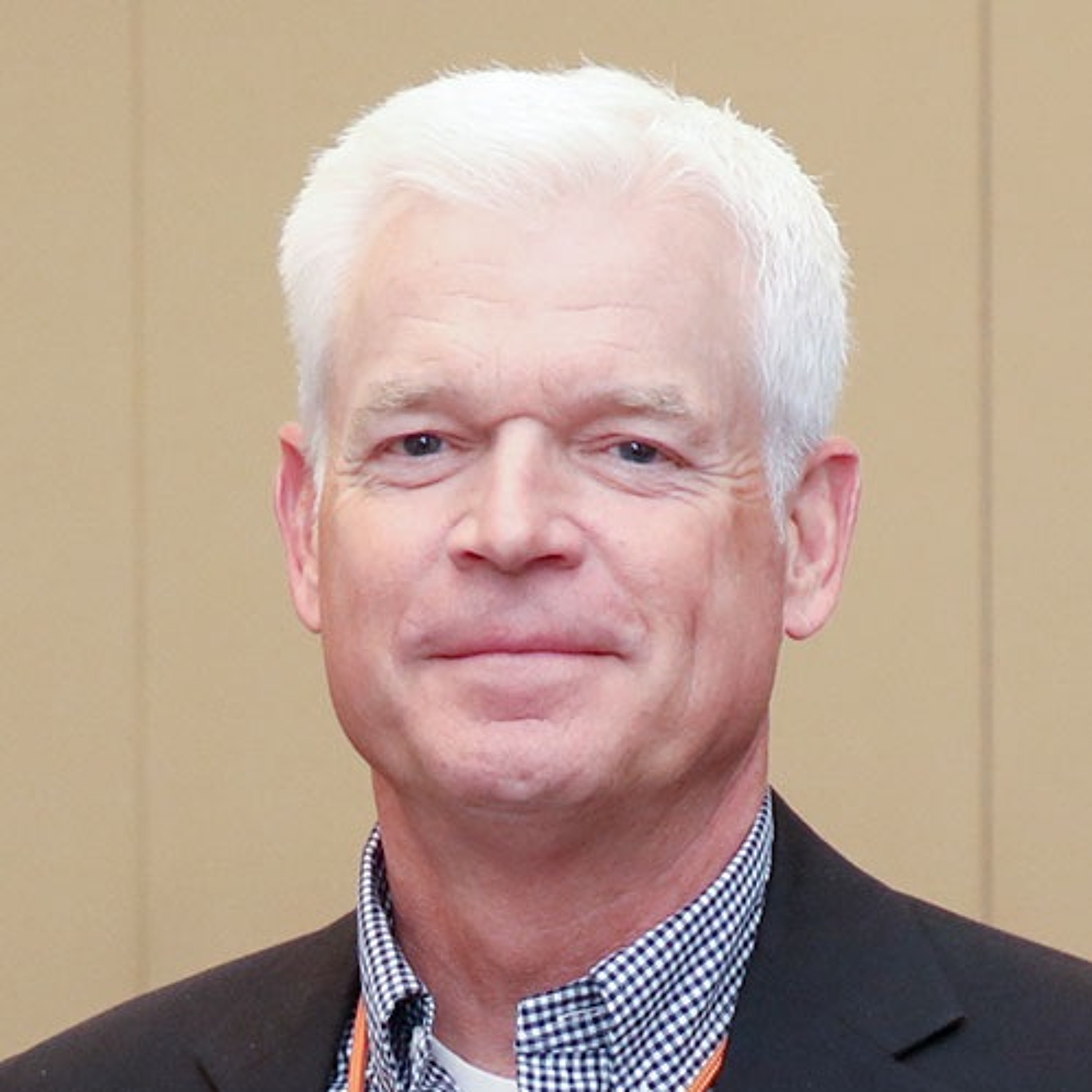 Exascale Computing Project PodcastEpisode 23: A Discussion with ECP’s Director—August 2018Episode Notes: Leadership, collaboration, key exascale challenges, and performance measurement are among the topics discussed with ECP Director Doug Kothe.
More on the discussion: https://www.exascaleproject.org/a-discussion-with-ecps-director-august-2018/2018-09-0520 min
Exascale Computing Project PodcastEpisode 23: A Discussion with ECP’s Director—August 2018Episode Notes: Leadership, collaboration, key exascale challenges, and performance measurement are among the topics discussed with ECP Director Doug Kothe.
More on the discussion: https://www.exascaleproject.org/a-discussion-with-ecps-director-august-2018/2018-09-0520 min Exascale Computing Project PodcastEpisode 20: Influencing the Evolution of the MPI Standard for Optimal Scientific ApplicationsEpisode 20: The Exascale MPI project is directed at affecting the evolution of the de facto programming model for parallel computing, message passing interface, so that optimal exascale scientific applications can be developed. Guests: Pavan Balaji and Ken Raffenetti, Argonne National Laboratory.
Edited Transcript: https://www.exascaleproject.org/influencing-the-evolution-of-the-mpi-standard-for-optimal-exascale-scientific-applications/2018-07-1023 min
Exascale Computing Project PodcastEpisode 20: Influencing the Evolution of the MPI Standard for Optimal Scientific ApplicationsEpisode 20: The Exascale MPI project is directed at affecting the evolution of the de facto programming model for parallel computing, message passing interface, so that optimal exascale scientific applications can be developed. Guests: Pavan Balaji and Ken Raffenetti, Argonne National Laboratory.
Edited Transcript: https://www.exascaleproject.org/influencing-the-evolution-of-the-mpi-standard-for-optimal-exascale-scientific-applications/2018-07-1023 min Exascale Computing Project PodcastEpisode 19: Exascale the Key to Generating Realistic and Accurate Scenarios of Future EarthquakesComputer simulation has become an essential and core component of earthquake design for major infrastructure, but researchers need to better understand and quantify future earthquakes. Exascale computing could allow for the realization of such advances.
Edited Transcript: https://www.exascaleproject.org/exascale-holds-the-key-to-generating-realistic-and-accurate-scenarios-of-future-earthquakes/2018-06-1122 min
Exascale Computing Project PodcastEpisode 19: Exascale the Key to Generating Realistic and Accurate Scenarios of Future EarthquakesComputer simulation has become an essential and core component of earthquake design for major infrastructure, but researchers need to better understand and quantify future earthquakes. Exascale computing could allow for the realization of such advances.
Edited Transcript: https://www.exascaleproject.org/exascale-holds-the-key-to-generating-realistic-and-accurate-scenarios-of-future-earthquakes/2018-06-1122 min Exascale Computing Project PodcastEpisode 18: ADIOS: Providing a Framework for Scientific Data on Exascale SystemsThe ADIOS project is optimizing I/O on exascale architectures and making itself easily maintainable, sustainable, and extensible, while ensuring its performance and scalability. Guests: Members of the ADIOS research team.
Edited Transcript: https://www.exascaleproject.org/adios-providing-a-framework-for-scientific-data-on-exascale-systems/2018-05-3014 min
Exascale Computing Project PodcastEpisode 18: ADIOS: Providing a Framework for Scientific Data on Exascale SystemsThe ADIOS project is optimizing I/O on exascale architectures and making itself easily maintainable, sustainable, and extensible, while ensuring its performance and scalability. Guests: Members of the ADIOS research team.
Edited Transcript: https://www.exascaleproject.org/adios-providing-a-framework-for-scientific-data-on-exascale-systems/2018-05-3014 min Exascale Computing Project PodcastEpisode 17: Making the Development of Scientific Applications Effective and EfficientECP’s Software Development Kit effort is an organizational approach to reduce the complexity of the project management of ECP software technology. Guest: Michael Heroux, director of ECP’s Software Technology research focus area.
Edited Transcript: https://www.exascaleproject.org/helping-to-make-the-development-of-scientific-applications-effective-and-efficient-for-exascale-and-beyond/2018-05-1017 min
Exascale Computing Project PodcastEpisode 17: Making the Development of Scientific Applications Effective and EfficientECP’s Software Development Kit effort is an organizational approach to reduce the complexity of the project management of ECP software technology. Guest: Michael Heroux, director of ECP’s Software Technology research focus area.
Edited Transcript: https://www.exascaleproject.org/helping-to-make-the-development-of-scientific-applications-effective-and-efficient-for-exascale-and-beyond/2018-05-1017 min Exascale Computing Project PodcastEpisode 16: Transforming Combustion Science and Technology with Exascale SimulationsThe Combustion-Pele project uses predictive simulation of in-cylinder combustion processes to explore the potential for groundbreaking efficiences while limiting the formation of pollutants. Guest: Jackie Chen, Sandia National Laboratories.
Edited Transcript: https://www.exascaleproject.org/transforming-combustion-science-and-technology-with-exascale-simulations/2018-05-0314 min
Exascale Computing Project PodcastEpisode 16: Transforming Combustion Science and Technology with Exascale SimulationsThe Combustion-Pele project uses predictive simulation of in-cylinder combustion processes to explore the potential for groundbreaking efficiences while limiting the formation of pollutants. Guest: Jackie Chen, Sandia National Laboratories.
Edited Transcript: https://www.exascaleproject.org/transforming-combustion-science-and-technology-with-exascale-simulations/2018-05-0314 min Exascale Computing Project PodcastEpisode 15: Getting Ready to Model Molecular Properties at Exascale with NWChemExSoftware called NWChem, or Northwest Chem, can tell researchers a lot about many molecular systems. The NWChemEx project is preparing the software for exascale. Guest: Thom Dunning, the University of Washington and the Northwest Institute for Advanced Computing.
Edited Transcript: https://www.exascaleproject.org/getting-ready-to-model-molecular-properties-at-exascale-with-nwchemex/2018-04-2613 min
Exascale Computing Project PodcastEpisode 15: Getting Ready to Model Molecular Properties at Exascale with NWChemExSoftware called NWChem, or Northwest Chem, can tell researchers a lot about many molecular systems. The NWChemEx project is preparing the software for exascale. Guest: Thom Dunning, the University of Washington and the Northwest Institute for Advanced Computing.
Edited Transcript: https://www.exascaleproject.org/getting-ready-to-model-molecular-properties-at-exascale-with-nwchemex/2018-04-2613 min Exascale Computing Project PodcastEpisode 14: Harnessing Exascale for the Long-Term Design and Planning of Urban SystemsThe Multiscale Coupled Urban Systems project is applying computing technology and computer models to long-term design and planning issues that pertain to cities. Guest: Charlie Catlett, Argonne National Laboratory.
Edited Transcript: https://www.exascaleproject.org/harnessing-the-power-of-exascale-for-the-long-term-design-and-planning-of-urban-systems/2018-04-1623 min
Exascale Computing Project PodcastEpisode 14: Harnessing Exascale for the Long-Term Design and Planning of Urban SystemsThe Multiscale Coupled Urban Systems project is applying computing technology and computer models to long-term design and planning issues that pertain to cities. Guest: Charlie Catlett, Argonne National Laboratory.
Edited Transcript: https://www.exascaleproject.org/harnessing-the-power-of-exascale-for-the-long-term-design-and-planning-of-urban-systems/2018-04-1623 min Exascale Computing Project PodcastEpisode 13: Developing Communication Software Libraries with Low Operating OverheadsThe Pagoda project aims to develop communication software libraries with low operating overheads that will enable application and software developers to tap the high performance of the US Department of Energy's exascale computers. Guest: Scott Baden, Lawrence Berkeley National Laboratory.
Edited Transcript: https://www.exascaleproject.org/developing-communication-software-libraries-low-operating-overheads-tap-high-performance-exascale-computers/2018-04-0511 min
Exascale Computing Project PodcastEpisode 13: Developing Communication Software Libraries with Low Operating OverheadsThe Pagoda project aims to develop communication software libraries with low operating overheads that will enable application and software developers to tap the high performance of the US Department of Energy's exascale computers. Guest: Scott Baden, Lawrence Berkeley National Laboratory.
Edited Transcript: https://www.exascaleproject.org/developing-communication-software-libraries-low-operating-overheads-tap-high-performance-exascale-computers/2018-04-0511 min Exascale Computing Project PodcastEpisode 11: Efficiently Using Power and Optimizing Performance of Scientific ApplicationsThe Power Steering project within the ECP provides a job-level power management system that can optimize performance under power and/or energy constraints. Guest: Tapasya Patki, Lawrence Livermore National Laboratory
Edited Transcript: https://www.exascaleproject.org/efficiently-using-power-optimizing-performance-scientific-applications-exascale/2018-03-1513 min
Exascale Computing Project PodcastEpisode 11: Efficiently Using Power and Optimizing Performance of Scientific ApplicationsThe Power Steering project within the ECP provides a job-level power management system that can optimize performance under power and/or energy constraints. Guest: Tapasya Patki, Lawrence Livermore National Laboratory
Edited Transcript: https://www.exascaleproject.org/efficiently-using-power-optimizing-performance-scientific-applications-exascale/2018-03-1513 min Exascale Computing Project PodcastEpisode 10: ECP Co-Design Center Looks at Particle-Based Applications for ExascaleThe applications of interest to the ECP's Co-Design Center for Particle-Based Applications (COPA) examine the behavior of proteins, materials, astrophysical objects, and more. Guest: Tim Germann, Los Alamos National Laboratory.
Edited Transcript: https://www.exascaleproject.org/ecp-co-design-center-looks-particle-based-applications-exascale/2018-03-0711 min
Exascale Computing Project PodcastEpisode 10: ECP Co-Design Center Looks at Particle-Based Applications for ExascaleThe applications of interest to the ECP's Co-Design Center for Particle-Based Applications (COPA) examine the behavior of proteins, materials, astrophysical objects, and more. Guest: Tim Germann, Los Alamos National Laboratory.
Edited Transcript: https://www.exascaleproject.org/ecp-co-design-center-looks-particle-based-applications-exascale/2018-03-0711 min Exascale Computing Project PodcastEpisode 9: Pushing MPI and Open MPI to ExascaleThe Open MPI for Exascale project is focusing on the communication infrastructure of MPI, or message passing interface, an extremely widely used standard for interprocessor communications for parallel computing. Guest: David Bernholdt, Oak Ridge National Laboratory
Edited Transcript: https://www.exascaleproject.org/pushing-mpi-open-mpi-exascale/2018-02-1509 min
Exascale Computing Project PodcastEpisode 9: Pushing MPI and Open MPI to ExascaleThe Open MPI for Exascale project is focusing on the communication infrastructure of MPI, or message passing interface, an extremely widely used standard for interprocessor communications for parallel computing. Guest: David Bernholdt, Oak Ridge National Laboratory
Edited Transcript: https://www.exascaleproject.org/pushing-mpi-open-mpi-exascale/2018-02-1509 min Exascale Computing Project PodcastEpisode 8: Addressing Fault Tolerance and Providing Data Reduction at ExascaleThe VeloC project endeavors to provide ECP applications an optimal fault-tolerance environment, while the aim of the EZ project is to provide data reduction. Guest: Franck Cappello, Argonne National Laboratory.
Edited Transcript: https://www.exascaleproject.org/addressing-fault-tolerance-and-providing-data-reduction-at-exascale/2018-02-0812 min
Exascale Computing Project PodcastEpisode 8: Addressing Fault Tolerance and Providing Data Reduction at ExascaleThe VeloC project endeavors to provide ECP applications an optimal fault-tolerance environment, while the aim of the EZ project is to provide data reduction. Guest: Franck Cappello, Argonne National Laboratory.
Edited Transcript: https://www.exascaleproject.org/addressing-fault-tolerance-and-providing-data-reduction-at-exascale/2018-02-0812 min Exascale Computing Project PodcastEpisode 7: Delivering Efficient Parallel I/O with HDF5 on Exascale Computing SystemsThe ExaHDF5 project is making HDF5, one of the most popular parallel I/O libraries in high-end supercomputing, ready for exascale. Guests: Suren Byna, Lawrence Berkeley National Laboratory; Quincey Koziol, National Energy Research Scientific Computing Center.
Edited Transcript: https://www.exascaleproject.org/delivering-efficient-parallel-io-with-hdf5-on-exascale-computing-systems/2018-02-0113 min
Exascale Computing Project PodcastEpisode 7: Delivering Efficient Parallel I/O with HDF5 on Exascale Computing SystemsThe ExaHDF5 project is making HDF5, one of the most popular parallel I/O libraries in high-end supercomputing, ready for exascale. Guests: Suren Byna, Lawrence Berkeley National Laboratory; Quincey Koziol, National Energy Research Scientific Computing Center.
Edited Transcript: https://www.exascaleproject.org/delivering-efficient-parallel-io-with-hdf5-on-exascale-computing-systems/2018-02-0113 min Exascale Computing Project PodcastEpisode 4: Extending the Reach of Molecular Dynamics Simulations by Leveraging ExascaleThe Exascale Atomistic Capability for Accuracy, Length, and Time (EXAALT) project specializes in molecular dynamics simulations of materials. Guest: Danny Perez, Los Alamos National Laboratory.
Edited Transcript: https://www.exascaleproject.org/extending-reach-molecular-dynamics-simulations-leveraging-exascale/2018-01-0914 min
Exascale Computing Project PodcastEpisode 4: Extending the Reach of Molecular Dynamics Simulations by Leveraging ExascaleThe Exascale Atomistic Capability for Accuracy, Length, and Time (EXAALT) project specializes in molecular dynamics simulations of materials. Guest: Danny Perez, Los Alamos National Laboratory.
Edited Transcript: https://www.exascaleproject.org/extending-reach-molecular-dynamics-simulations-leveraging-exascale/2018-01-0914 min Exascale Computing Project PodcastEpisode 3: Making Components of GAMESS Software More ScalableA conversation with Ames Laboratory’s Mark Gordon on the GAMESS project
Mark Gordon, Ames Laboratory Associate and Distinguished Professor at Iowa State University, spoke with Exascale Computing Project (ECP) Communications at SC17 in Denver. Gordon is the principal investigator for the ECP project called General Atomic and Molecular Electronic Structure System (GAMESS), which is developing methods for computational chemistry. We talked to him about various details of the project and what it has accomplished so far.
Edited Transcript: https://www.exascaleproject.org/making-components-gamess-software-scalable/2018-01-0313 min
Exascale Computing Project PodcastEpisode 3: Making Components of GAMESS Software More ScalableA conversation with Ames Laboratory’s Mark Gordon on the GAMESS project
Mark Gordon, Ames Laboratory Associate and Distinguished Professor at Iowa State University, spoke with Exascale Computing Project (ECP) Communications at SC17 in Denver. Gordon is the principal investigator for the ECP project called General Atomic and Molecular Electronic Structure System (GAMESS), which is developing methods for computational chemistry. We talked to him about various details of the project and what it has accomplished so far.
Edited Transcript: https://www.exascaleproject.org/making-components-gamess-software-scalable/2018-01-0313 min Exascale Computing Project PodcastEpisode 2: Understanding, Storing, and Curating Scientific Data at ExascaleA conversation with Los Alamos National Laboratory’s Jim Ahrens on his ECP Data and Visualization project.
Edited Transcript: https://www.exascaleproject.org/understanding-storing-curating-scientific-data-exascale/2017-12-2007 min
Exascale Computing Project PodcastEpisode 2: Understanding, Storing, and Curating Scientific Data at ExascaleA conversation with Los Alamos National Laboratory’s Jim Ahrens on his ECP Data and Visualization project.
Edited Transcript: https://www.exascaleproject.org/understanding-storing-curating-scientific-data-exascale/2017-12-2007 min Exascale Computing Project PodcastEpisode 1: Lighting the Way to Exascale Precision MedicineRick Stevens discusses the CANcer Distributed Learning Environment (CANDLE), an ECP application development project targeting new computational methods for cancer treatment with precision medicine.
Edited Transcript: https://www.exascaleproject.org/lighting-way-exascale-precision-medicine/2017-12-1309 min
Exascale Computing Project PodcastEpisode 1: Lighting the Way to Exascale Precision MedicineRick Stevens discusses the CANcer Distributed Learning Environment (CANDLE), an ECP application development project targeting new computational methods for cancer treatment with precision medicine.
Edited Transcript: https://www.exascaleproject.org/lighting-way-exascale-precision-medicine/2017-12-1309 min Radio HPC: The Rich ReportBull eXascale Interconnect (BXI)
In this podcast, Jean-Pierre Panziera from Atos presents: BXI - Bull eXascale Interconnect.
"Exascale entails an explosion of performance, of the number of nodes/cores, of data volume and data movement. At such a scale, optimizing the network that is the backbone of the system becomes a major contributor to global performance. The interconnect is going to be a key enabling technology for exascale systems. This is why one of the cornerstones of Bull’s exascale program is the development of our own new-generation interconnect. The Bull eXascale Interconnect or BXI introduces a paradigm shift in terms of performance, scalability, effic...2017-05-0500 min
Radio HPC: The Rich ReportBull eXascale Interconnect (BXI)
In this podcast, Jean-Pierre Panziera from Atos presents: BXI - Bull eXascale Interconnect.
"Exascale entails an explosion of performance, of the number of nodes/cores, of data volume and data movement. At such a scale, optimizing the network that is the backbone of the system becomes a major contributor to global performance. The interconnect is going to be a key enabling technology for exascale systems. This is why one of the cornerstones of Bull’s exascale program is the development of our own new-generation interconnect. The Bull eXascale Interconnect or BXI introduces a paradigm shift in terms of performance, scalability, effic...2017-05-0500 min Intel Chip ChatEnabling Exascale Computing with Intel® Scalable System Framework – Intel® Chip Chat episode 425Dr. Al Gara, Intel Fellow and Chief Architect for Exascale Systems for the Data Center Group at Intel stops by to talk about how Intel’s scalable system framework (SSF) is meeting the extreme challenges and opportunities that researchers and scientists face in high performance computing (HPC) today. He explains that SSF incorporates many different Intel technologies including; Intel® Xeon® and Phi® processors, Intel® Omni-Path Fabrics, silicon photonics, innovative memory technologies, and efficiently integrates these elements into a broad spectrum of system solutions optimized for both compute and data-intensive workloads. Al emphasizes that this framework has the ability to scale from v...2015-11-1307 min
Intel Chip ChatEnabling Exascale Computing with Intel® Scalable System Framework – Intel® Chip Chat episode 425Dr. Al Gara, Intel Fellow and Chief Architect for Exascale Systems for the Data Center Group at Intel stops by to talk about how Intel’s scalable system framework (SSF) is meeting the extreme challenges and opportunities that researchers and scientists face in high performance computing (HPC) today. He explains that SSF incorporates many different Intel technologies including; Intel® Xeon® and Phi® processors, Intel® Omni-Path Fabrics, silicon photonics, innovative memory technologies, and efficiently integrates these elements into a broad spectrum of system solutions optimized for both compute and data-intensive workloads. Al emphasizes that this framework has the ability to scale from v...2015-11-1307 min insideHPCThis Week in HPC: Exascale Bill Faces Uncertain Future in U.S. Senate, and HPC Gets in the Entrepreneurial SpiritIn this episode of This Week in HPC, Michael Feldman and Addison Snell from Intersect360 Research discuss how the recent election might affect spending for Exascale research. After the break, they preview the StartupHPC Meetup at SC14.
The post This Week in HPC: Exascale Bill Faces Uncertain Future in U.S. Senate, and HPC Gets in the Entrepreneurial Spirit appeared first on insideHPC.2014-11-1000 min
insideHPCThis Week in HPC: Exascale Bill Faces Uncertain Future in U.S. Senate, and HPC Gets in the Entrepreneurial SpiritIn this episode of This Week in HPC, Michael Feldman and Addison Snell from Intersect360 Research discuss how the recent election might affect spending for Exascale research. After the break, they preview the StartupHPC Meetup at SC14.
The post This Week in HPC: Exascale Bill Faces Uncertain Future in U.S. Senate, and HPC Gets in the Entrepreneurial Spirit appeared first on insideHPC.2014-11-1000 min insideHPCThis Week in HPC: Exascale Bill Faces Uncertain Future in U.S. Senate, and HPC Gets in the Entrepreneurial SpiritIn this episode of This Week in HPC, Michael Feldman and Addison Snell from Intersect360 Research discuss how the recent election might affect spending for Exascale research. After the break, they preview the StartupHPC Meetup at SC14.
The post This Week in HPC: Exascale Bill Faces Uncertain Future in U.S. Senate, and HPC Gets in the Entrepreneurial Spirit appeared first on insideHPC.2014-11-1000 min
insideHPCThis Week in HPC: Exascale Bill Faces Uncertain Future in U.S. Senate, and HPC Gets in the Entrepreneurial SpiritIn this episode of This Week in HPC, Michael Feldman and Addison Snell from Intersect360 Research discuss how the recent election might affect spending for Exascale research. After the break, they preview the StartupHPC Meetup at SC14.
The post This Week in HPC: Exascale Bill Faces Uncertain Future in U.S. Senate, and HPC Gets in the Entrepreneurial Spirit appeared first on insideHPC.2014-11-1000 min HPCwire SoundbiteRe-Routing Exascale Simulation Storage, Power ConcernsToday we’ll be talking about power and storage constraints for exascale-class simulations with Jim Ahrens, Visualization Team Leader at Los Alamos National Laboratory. We’ll discuss these problems in the context […]
The post Re-Routing Exascale Simulation Storage, Power Concerns appeared first on HPCwire.
2014-05-0713 min
HPCwire SoundbiteRe-Routing Exascale Simulation Storage, Power ConcernsToday we’ll be talking about power and storage constraints for exascale-class simulations with Jim Ahrens, Visualization Team Leader at Los Alamos National Laboratory. We’ll discuss these problems in the context […]
The post Re-Routing Exascale Simulation Storage, Power Concerns appeared first on HPCwire.
2014-05-0713 min